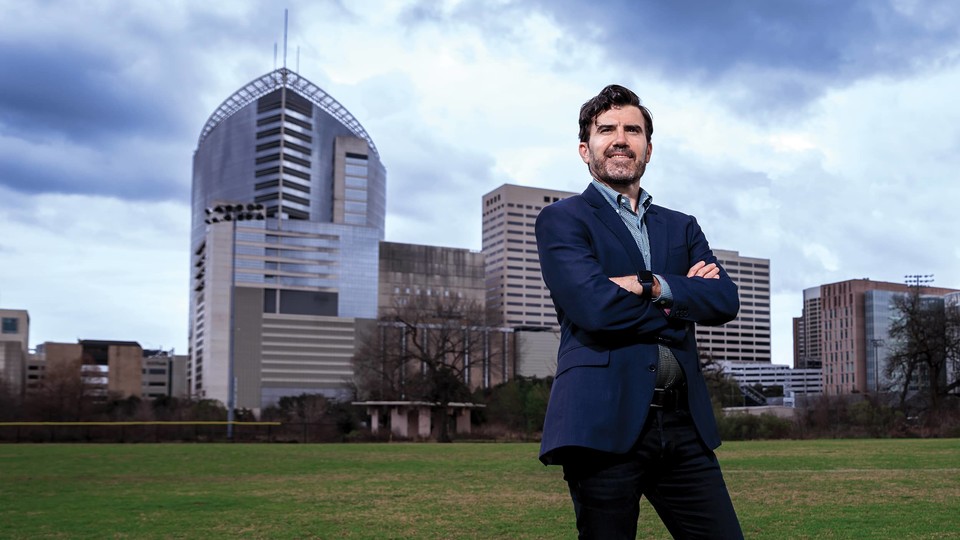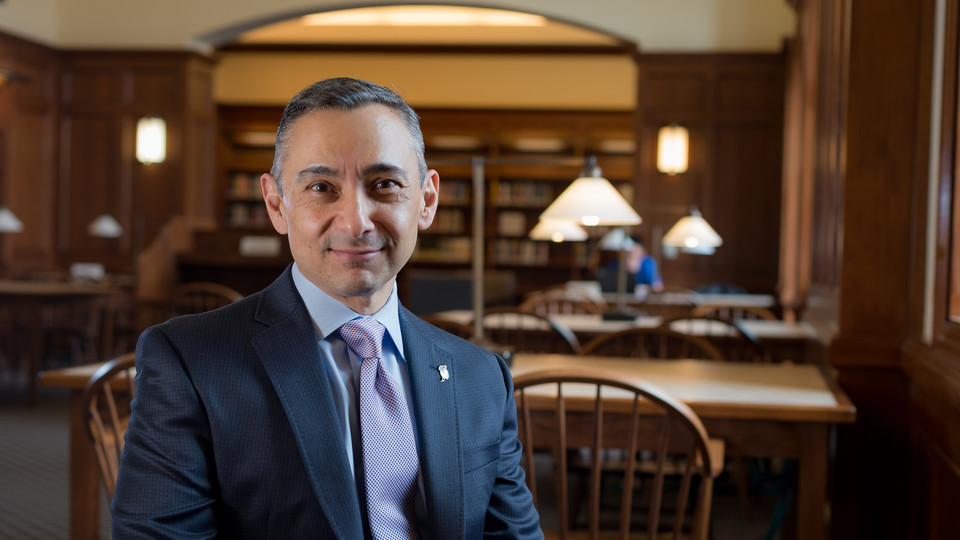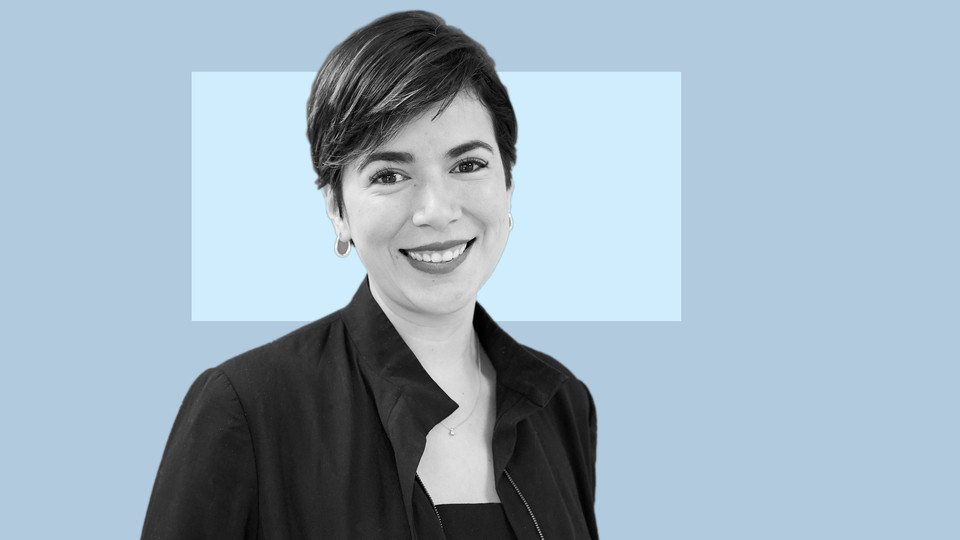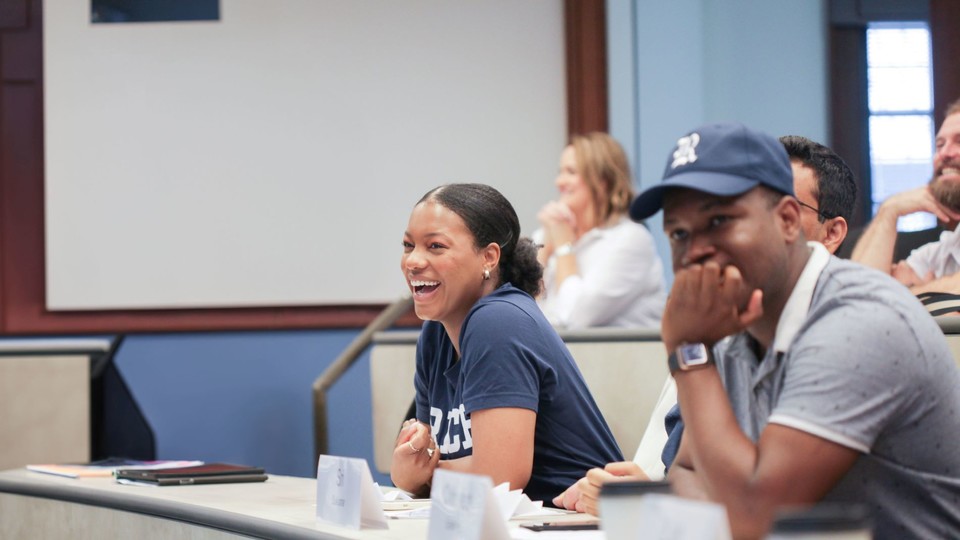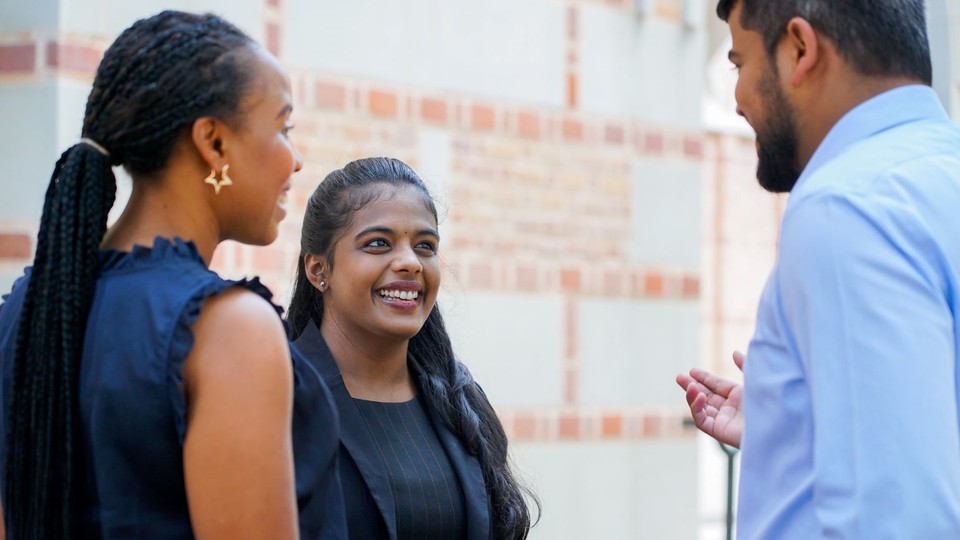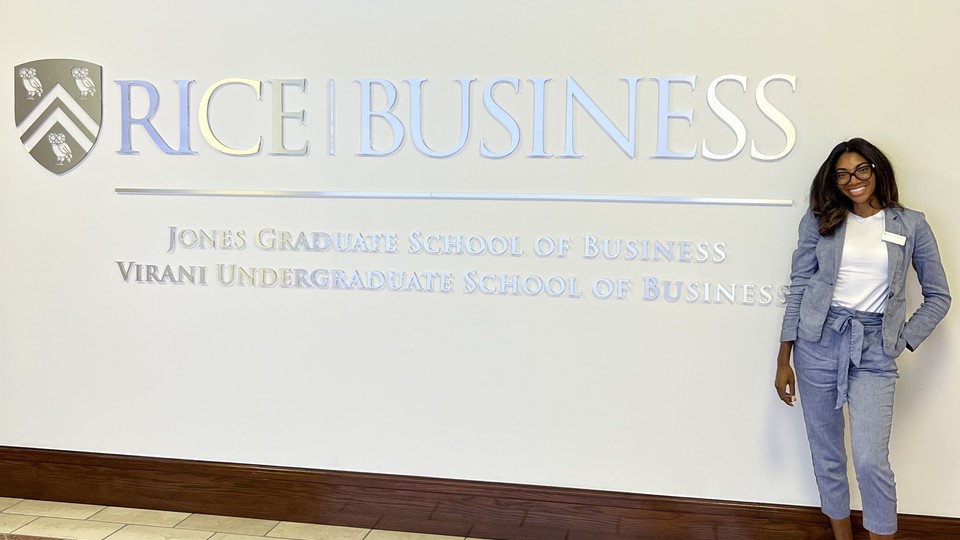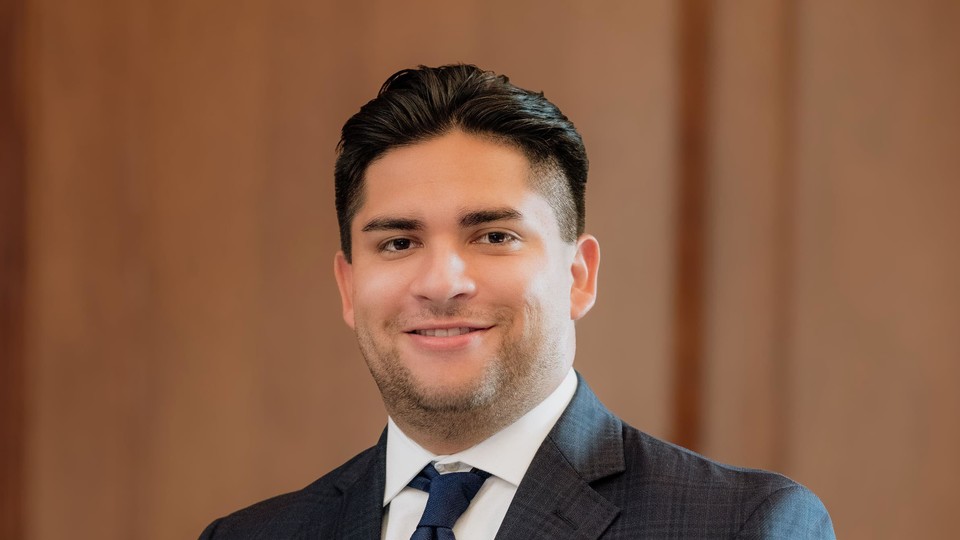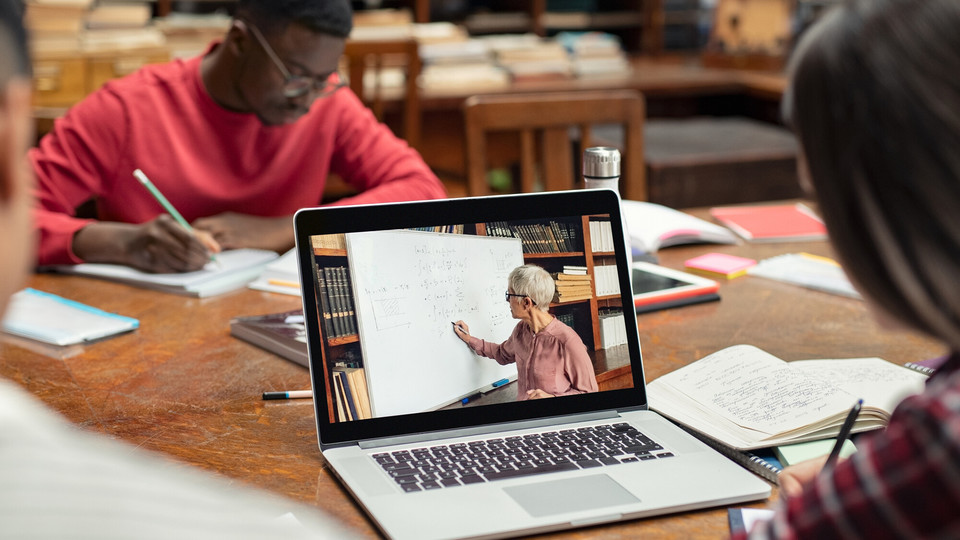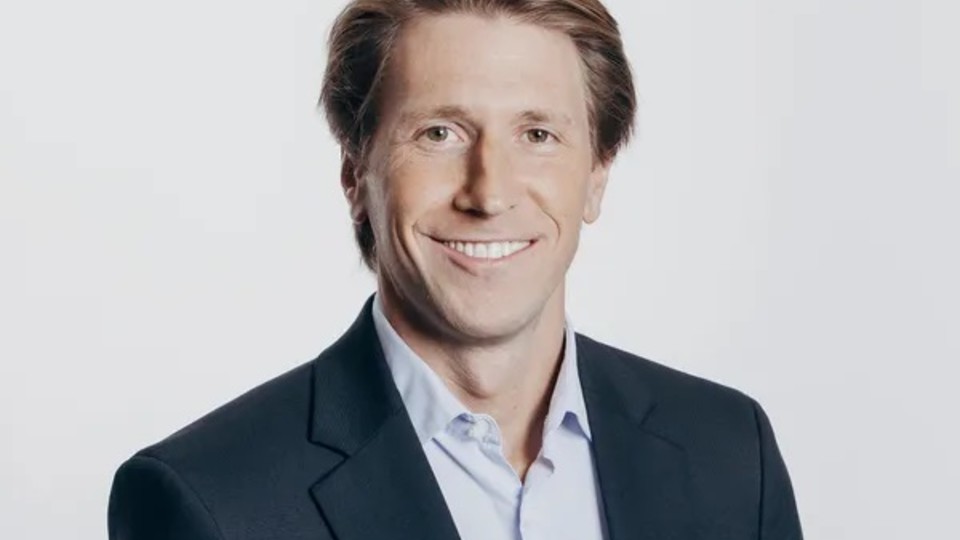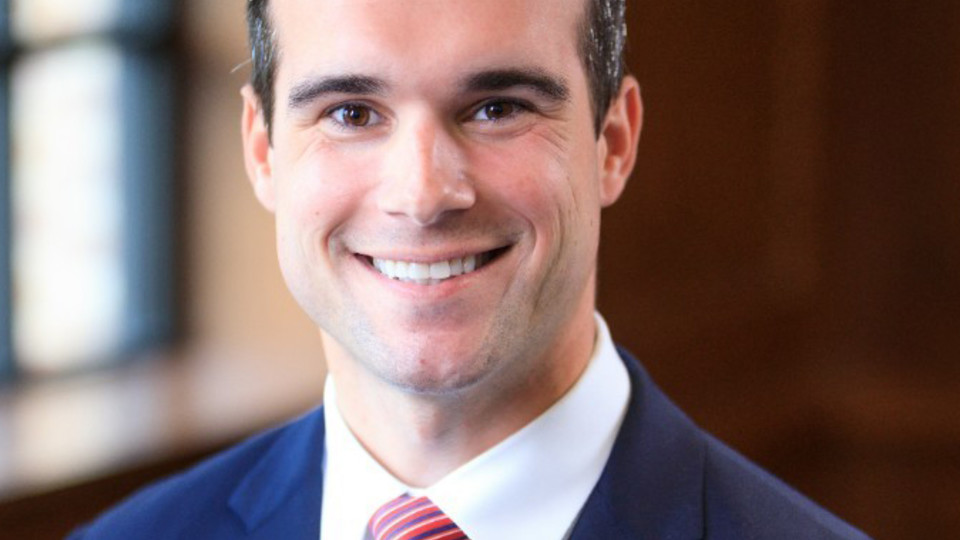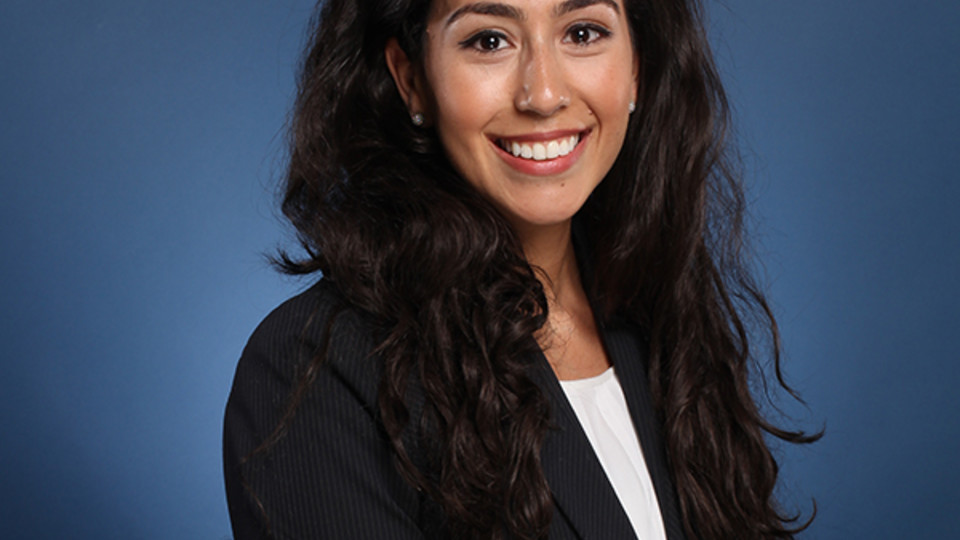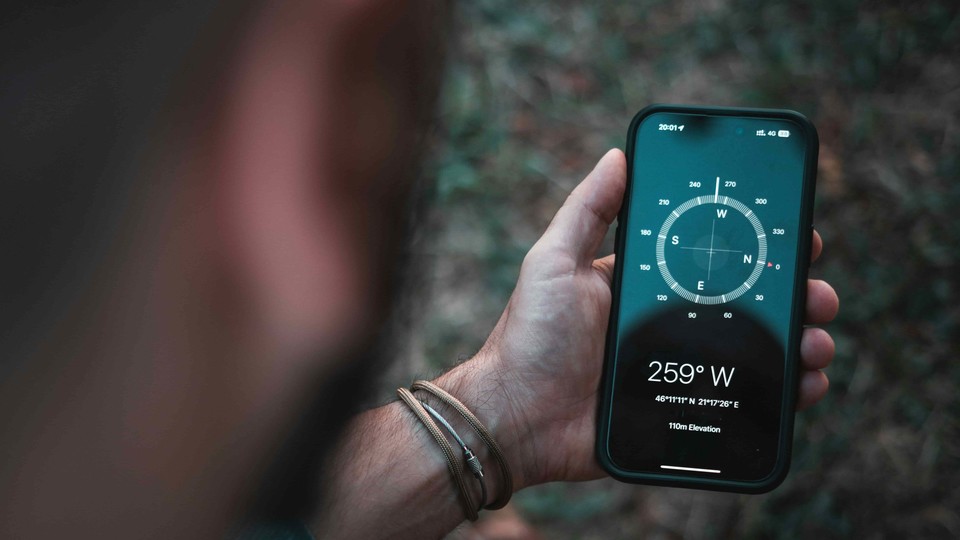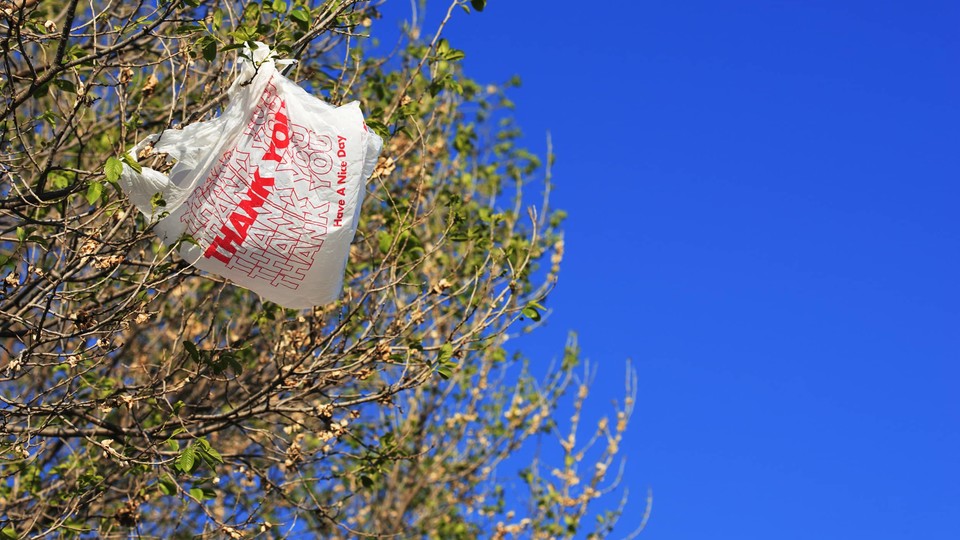A Glittering Opportunity
Looking back on the 50 years that shaped Rice Business.
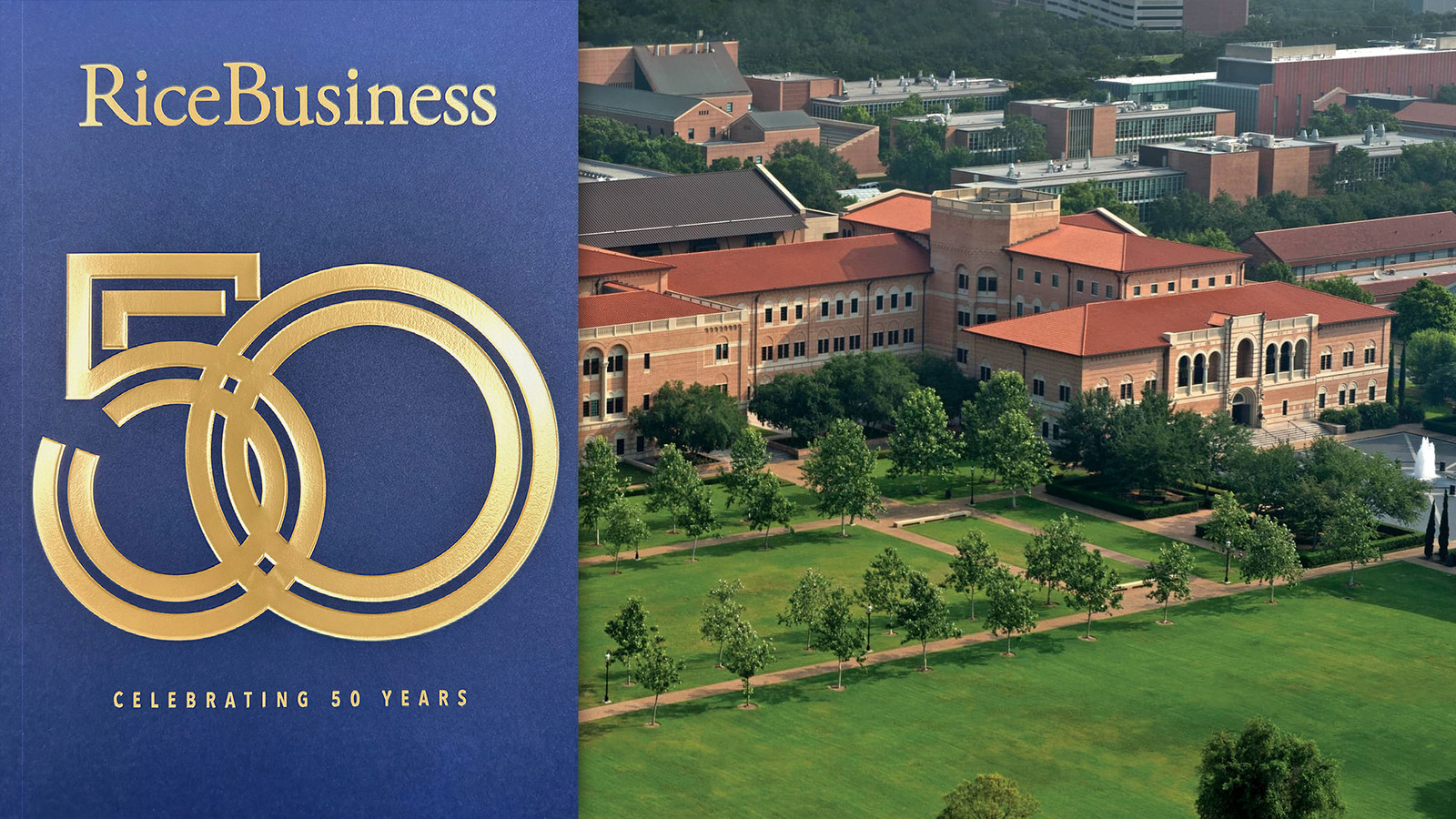
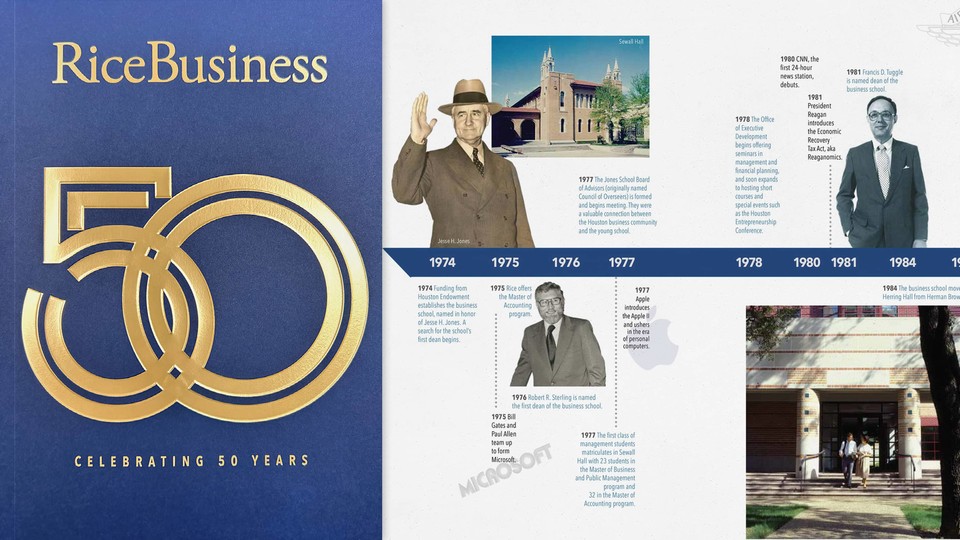
Looking Back on the 50 Years That Shaped Rice Business
Thoughts of a business school at Rice University were in the minds of administrators and influential business leaders in Houston as far back as 1958. And even earlier if you count the ambitions of the university’s first president, Edgar Odell Lovett, who knew a robust Houston business community meant success for Rice. As Houston grew, so did the need for a school of business to serve it. With a $5 million gift from Houston Endowment in 1974, that dream became the Jesse H. Jones Graduate School of Administration.
By the fall of 1977, with its first dean, three full-time faculty and four adjuncts, the school matriculated 55 students — 23 in the management program and 32 in the accounting program. Classes moved from Sewall Hall to Herman Brown Hall for Mathematical Sciences after that first year, and to the newly built Herring Hall by 1984 and McNair Hall in 2002, where we now house 65 tenured and tenure-track faculty, 155 staff and teach more than 1,700 MBAs, PhDs, MAccs and undergraduates a year.
The Jones Graduate School of Business — it had a name change from Administration to Management in 1998 and to Business in 2009, plus a new nickname in 2016 — has been no stranger to transforming itself to meet the evolving world of business. In April 1996, after an external review committee found that this “glittering opportunity” was not meeting its potential, the school was faced with a choice: “embark on a course of becoming recognized for world-class distinctiveness and quality in management education … or close the doors.” We chose the former.
We have survived the oil bust, recessions, economic crashes and hurricanes, and we have witnessed the birth of the Internet, the personal computer, the iPhone, and Amazon.com. Rice Business has seen a lot in 50 years. And so have our graduates. Here are just a few of the moments that shaped us, the business world and Rice Business.

From the Ground Up
In 1974, after funding from Houston Endowment establishes the business school, a search for the first dean began. A look at the leaders who have helped make Rice Business what it is today.
1976 – 1980
Robert R. Sterling is named first dean in 1976. By the following year, the first class matriculates and, the year after that, the Board of Advisors (originally called the Council of Overseers) is formed and begins meeting. Sterling also creates an Office of Executive Development, which begins offering seminars in management and financial planning, and soon expands to hosting short courses and special events such as the Houston Entrepreneurship Conference. He appoints an assistant dean for admissions and placement, and head of the Master of Business and Public Management program.
1981 – 1987
Francis D. Tuggle becomes dean after a year of interim responsibilities. He names the school’s first director of admissions and student affairs as well as the head of a career office, who creates an alumni network, facilitates summer internships, establishes on-campus interviews, and assists students with resume and interview skills development. Tuggle navigates the fundraising, building and move to Herring Hall, while overseeing the faculty approval of a shift from an MBPM to an MBA degree. (Anyone who earned an MBPM before that was allowed to change the name of their degree.)
1987 – 1997
Benjamin F. Bailar is named dean of the business school. He initiates a joint MBA/Master of Engineering degree through a partnership with the business school and the George R. Brown School of Engineering in response to the need for engineers to develop skills to manage a technology-driven economy.
1997 – 2005
Gilbert R. Whitaker (Rice Class of 1953), a member of the 1996 external review committee, sets the strategy to either launch the school into national prominence or close the doors. During his tenure, he helps the school gain accreditation; introduces the EMBA program; forms the Rice Alliance for Technology and Entrepreneurship, which hosts the annual Rice Business Plan Competition; and builds McNair Hall
2005 – 2016
William Glick is the longest-serving dean of the business school. He launches both the evening and weekend MBA for Professionals programs, the Ph.D. in Business and re-launches the Master of Accounting. He also oversees the launch of Rice Business Wisdom, an ideas magazine that highlights faculty research. Through the generous gift from Houston entrepreneur and Rice alumnus Frank Liu and his family, Glick oversees the introduction of the Liu Idea Lab for Innovation and Entrepreneurship (LILIE), which strengthens the entrepreneurial ecosystem at Rice University.
2016 – Present
Peter Rodriguez is named dean of the business school. Under his watch, the school creates a “nickname” Rice Business to tie the school more closely to the university in order to rapidly increase awareness; joins The Consortium; launches the first online degree at Rice University, MBA@Rice; introduces the undergraduate entrepreneurship minor and business major, and the Hybrid MBA; and sets the plan for a new building adjacent to McNair Hall to address doubled enrollment and to serve the Rice Business community.
Keep Exploring
Takeaways from CERAWeek Volunteers
MBA students volunteered their time during CERA Week and shared takeaways from their experience.
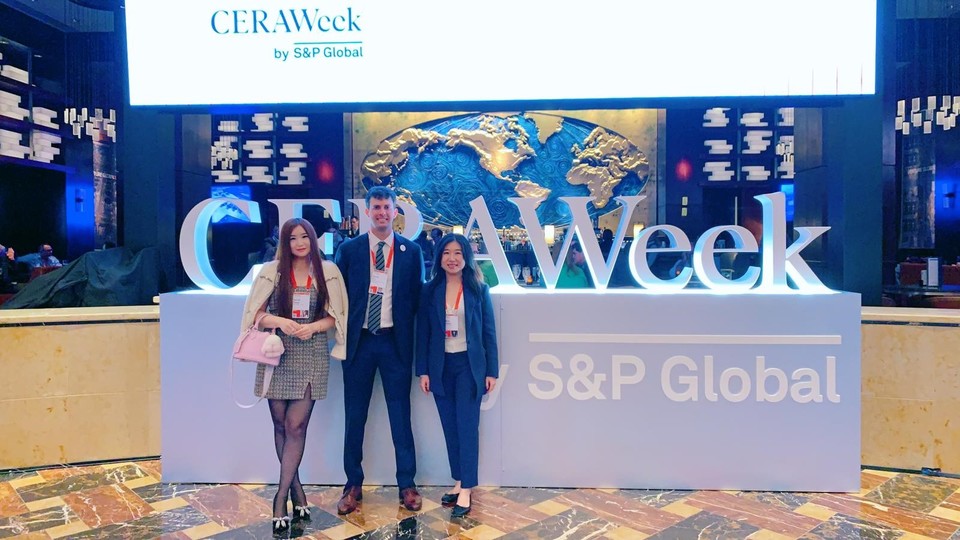
Rice MBA students volunteered their time during this year’s CERAWeek — an annual conference held in Houston and hosted by S&P Global. Below, they share takeaways from their experience.
What are the insights and discussions on the latest industry trends? What are we seeing in terms of innovative technologies and energy sector challenges?
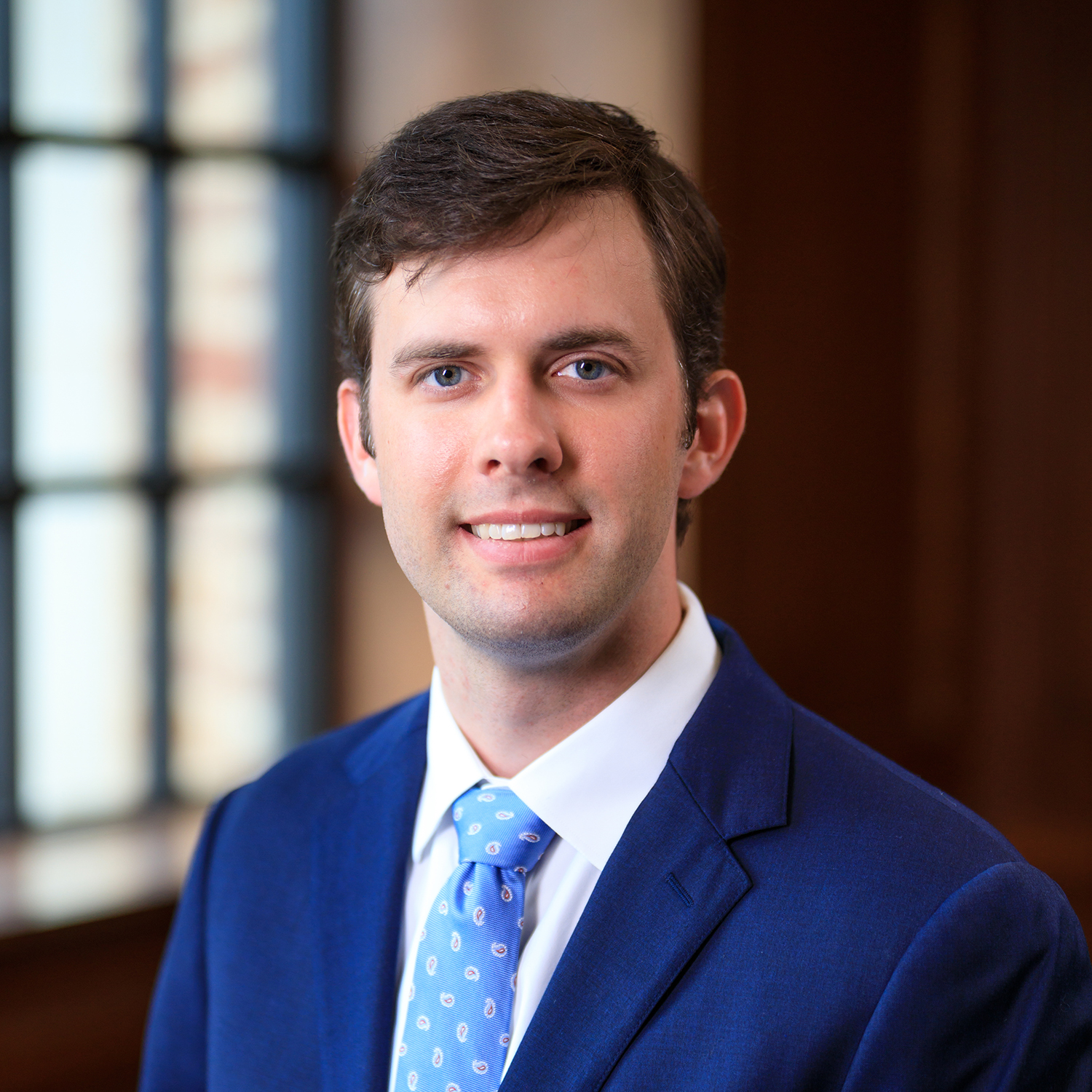
U.S. electricity demand is set to increase rapidly.
- Projections for future electricity needs have significantly increased due to rapid advancement in AI, a renewed focus on reshoring U.S. manufacturing, and ongoing efforts to electrify the economy.
- This demand surge impacts the aging and underinvested power grid. Traditional power and utility business models are struggling to support the anticipated load growth.
- The expansion of power projects — both renewable and conventional — is hindered by lengthy permitting processes, political opposition, and extended project queues.
Derek Fry, Full-Time MBA
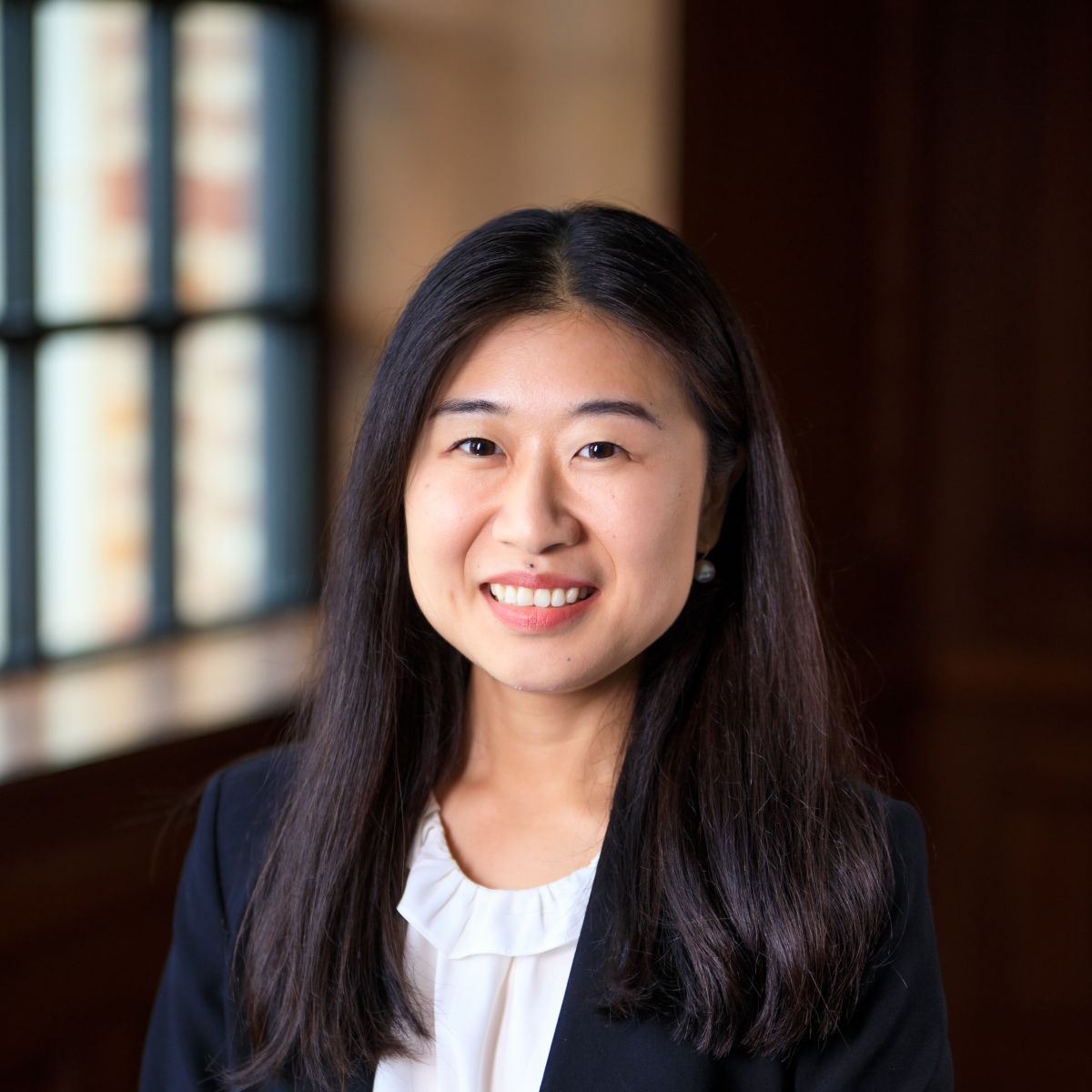
Efforts in clean tech and sustainability are driving operational and environmental improvements.
- Companies have an increasingly real opportunity to enhance efficiency, reduce costs and mitigate environmental impact.
- Strategic alliances between industry players, governments and stakeholders are vital in addressing global energy challenges.
- To drive growth and long-term resilience, the energy industry needs to embrace change, invest in renewable energy solutions, and prioritize sustainability.
Yijiao Huang, Full-Time MBA
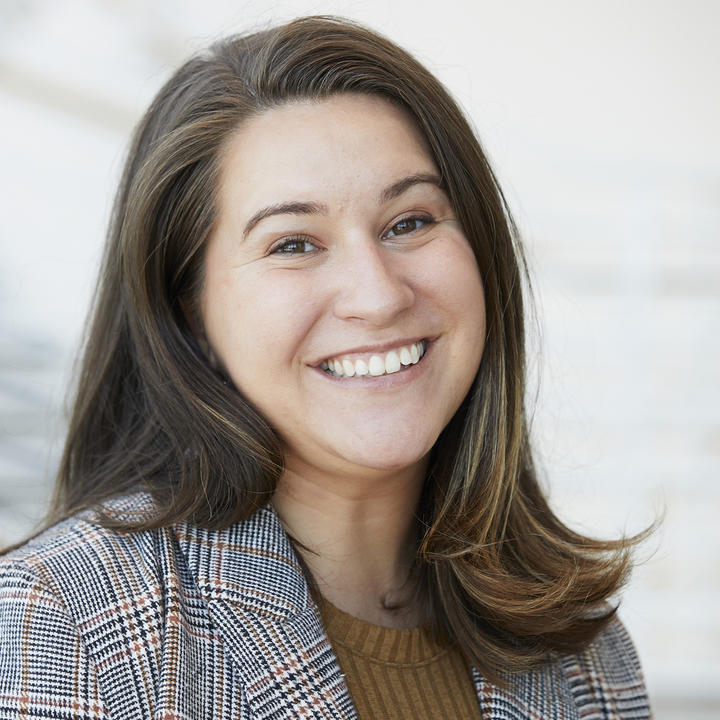
Hydrogen hubs boost supply, and soil carbon farming provides new revenue.
- Hydrogen hubs are driving progress in the hydrogen supply chain, although challenges remain in funding and strategy.
- Soil carbon sequestration gives farmers new revenue opportunities, but education and financing gaps persist.
- Momentum and incentives from government and corporations support the advancement of both hydrogen and carbon sequestration solutions.
Dana Vazquez, Full-Time MBA

Climate leadership calls for accelerated action through roadmaps, partnerships, and innovation.
- John Kerry: The world has advanced enormously towards a cleaner, more conscious way to power the future; nevertheless we need to accelerate.
- Energy transition needs talent, platforms, and partnerships to succeed.
- R&D, startups, and technology advancement are key for continued progress.
Mercedes Moncada-Garcia, Full-Time MBA

The energy transition is driven by collaboration and innovation across sectors.
- Both traditional and renewable energy sources are essential for an effective transition.
- Renewable and energy firms are driving innovation to address complex economic and geopolitical challenges.
- Collaborative spirit across industries will offer reassurance amidst challenges in long-term energy and emissions solutions.
McKinley Trusclair, Professional MBA
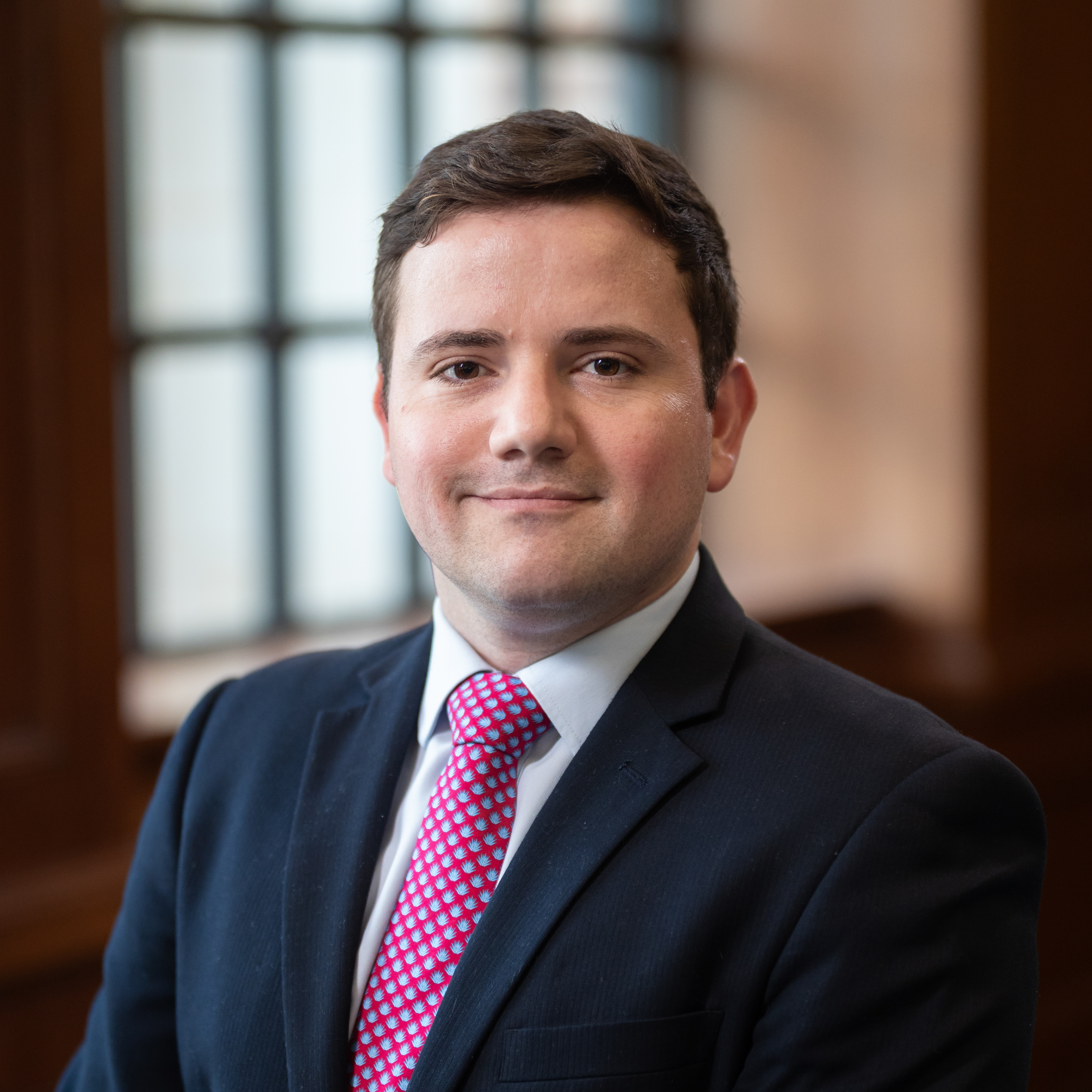
Advancing computing demands require innovative grid solutions.
- Grid stability faces a challenge in the growing energy needs of data centers and AI.
- Renewables introduce new grid management complexities.
- Advancements in battery storage and intelligent grid tech offer a promising path forward.
Jose Garza, Full-Time MBA
You May Also Like
Keep Exploring
“What I Wish I Knew Before Starting an MBA”
Seven Rice MBA students across various programs share what they wish they’d known before taking the plunge.
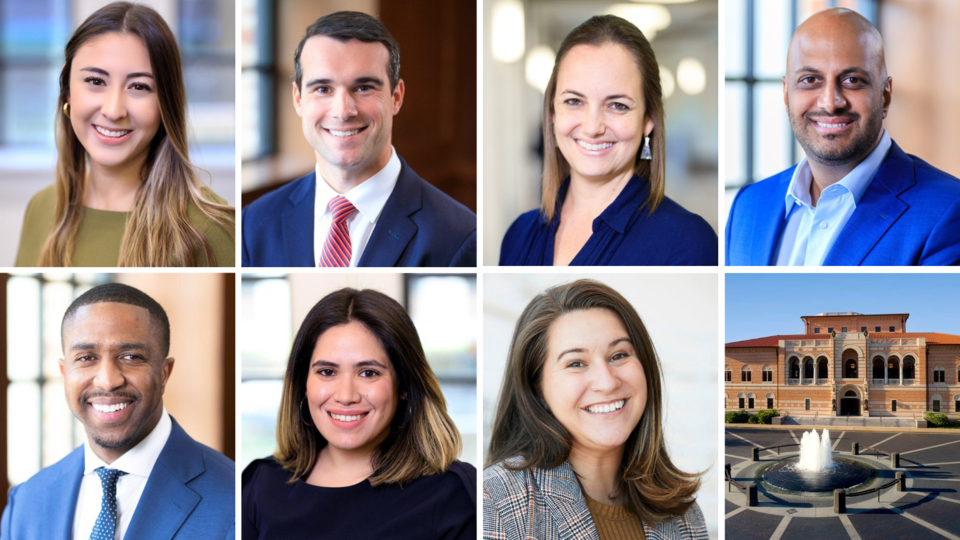
Embarking on an MBA journey is exhilarating and transformative. But it can also be daunting. Luckily, Rice Business students adapt quickly and are always generous with their hard-earned wisdom. Below, seven of our students across various programs share what they wish they’d known before taking the plunge.
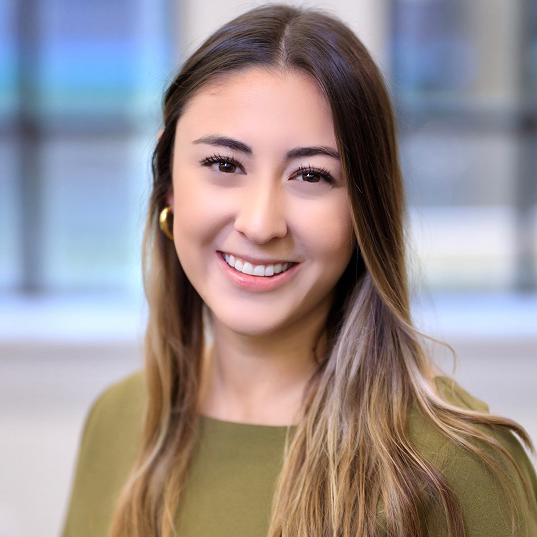
Your differences are an asset. Lean into what makes you unique
“It might seem like MBA programs are dominated by those with a strong quantitative background. But diversity in skills and perspectives enriches learning for everyone. Recognize and lean into your unique strengths; they are invaluable to your cohort’s collective learning experience. When you feel imposter syndrome creeping in, just remember that you were selected for the program because you bring a desired skill set.”
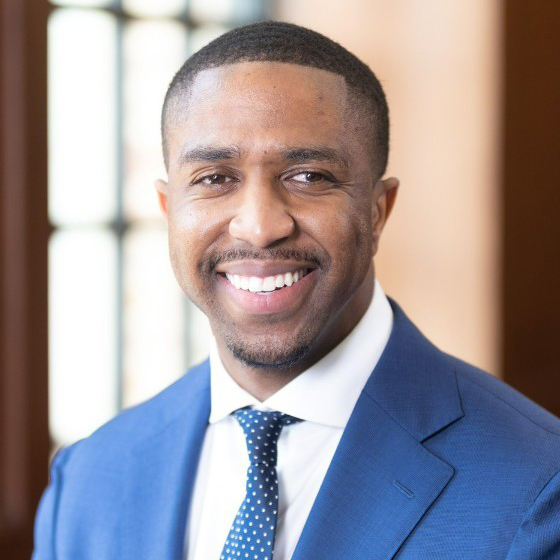
The relationships you build will be invaluable. Prioritize genuine connections.
“The community at Rice is unparalleled. You’re about to enter an environment teeming with talent, energy and inspiration. The people you meet here will shape your experience and impact your life in unimaginable ways. Take the time to forge genuine connections, to learn from and with your classmates. Embrace diverse perspectives and contribute to expanding others’ worldviews. Remember, it’s not just about what you learn but also about the respect and dignity you extend to others.”

Push yourself outside your comfort zone. That’s where transformative growth happens.
“When I came to Rice, I was pretty set on what I wanted to do within the program – I didn’t consider any other career paths outside of sustainability and felt compelled to stay on that track. Pretty quickly, I became pulled into the entrepreneurship environment and have since started two companies, competed in several pitch competitions, am on the executive team for the Entrepreneurship Association, have led an entrepreneurship-focused conference... the list goes on. I have loved being a part of the entrepreneurship community at Rice, and I never would’ve never expected it! You never know what topics will speak to you.”
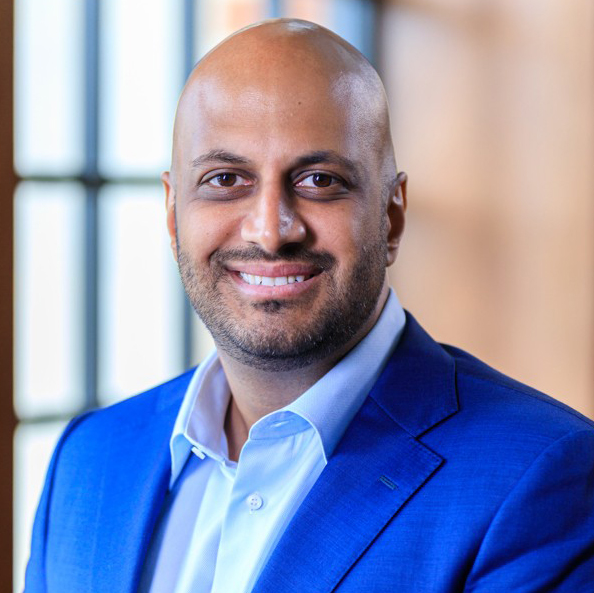
Be prepared for an intense pace. But know it is manageable.
“The first few weeks will feel like drinking from a fire hydrant. Time is your best friend. Do not try to do everything yourself, but rather rely on your team. Share the workload for projects and then teach each other. If you do the work and show up to class, you will learn! Do not worry about the grade. Executive boards care more about how changes in economic climates impact their businesses, versus what grade you received in economics class.”
Interested in Rice Business?
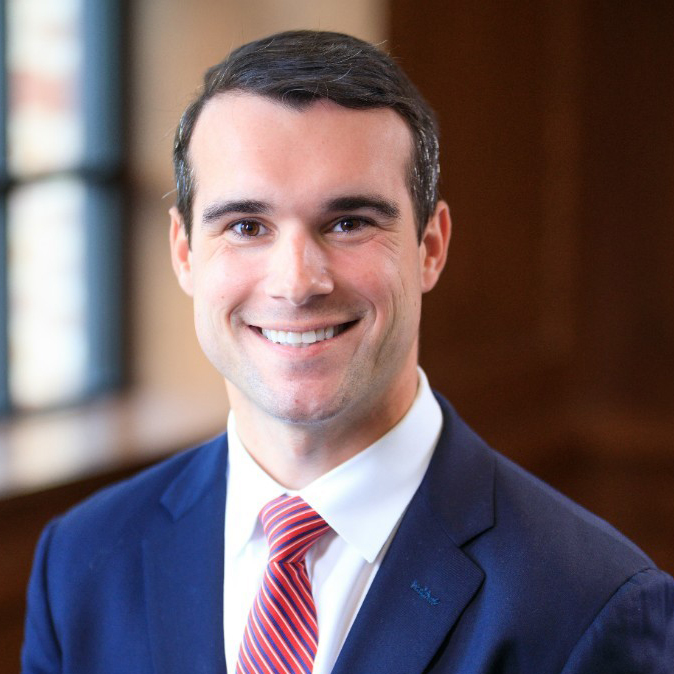
Start recruiting early. The process will boost your skills and profile.
“I wasn’t aware of all the opportunities there are for people to recruit for consulting, investment banking and other opportunities for those who qualify under the company’s diversity or early recruiting programs. Even if I didn’t land an early offer, it would have been good experience to interview and get familiar with companies early on.”
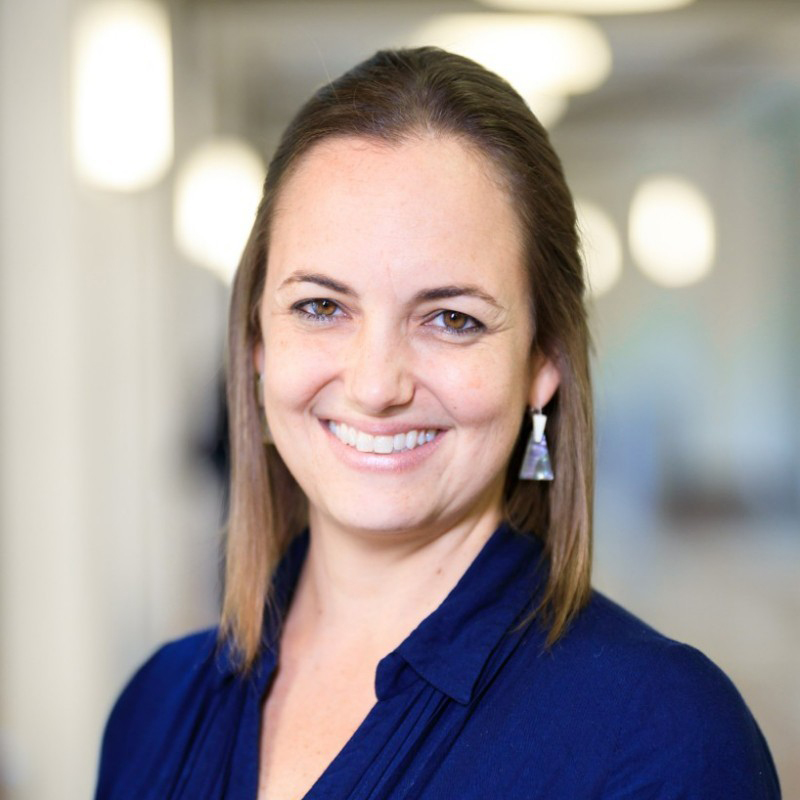
You will learn both inside and outside the classroom.
“Use the MBA as a sandbox to allow yourself to think differently — not only on campus but in every part of your life. Make yourself uncomfortable. Practice sharing your story in new situations. Speak up and ask the questions you always wanted answered. Explore that area you’ve always been curious about. Put what you learn into practice from day 1. This time is yours. Make the most of it!”
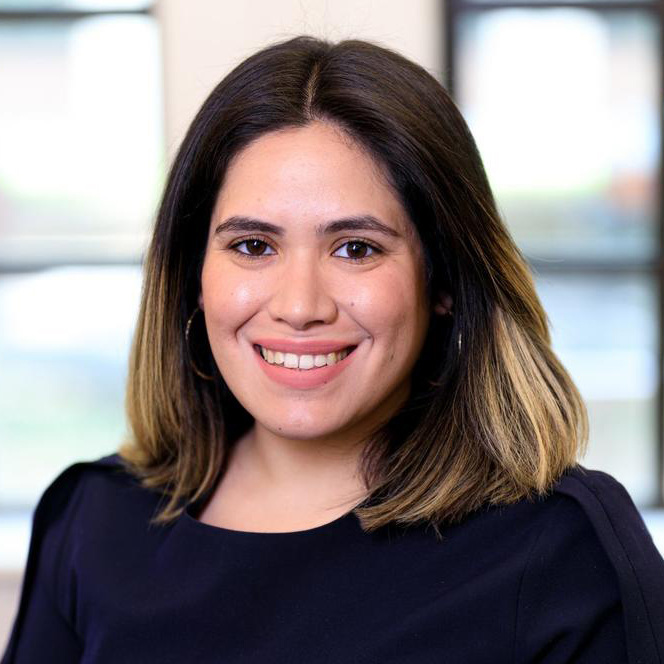
Remember: The MBA is about more than academics.
“It’s crucial to reevaluate the emphasis on grades. While academic achievement matters, the true essence lies in honing practical skills, critical thinking and problem-solving aptitude. It’s also ultimately about cultivating a robust network and lifelong friendships. The cohort experience fosters camaraderie, collaboration and a sense of community that extends far beyond the classroom. These friendships enrich the MBA experience and serve as a valuable support network throughout your career journey. Networking isn’t just about collecting business cards; it’s about creating connections that propel you forward — in all kinds of ways.”
The MBA experience can be intense, but the Office of Academic Programs and Student Experience (APSE) provides comprehensive support.
From the beginning, our dedicated team will help you build an invaluable network, develop practical skills and emerge as a well-rounded leader ready for continued growth. You belong here.
You May Also Like
Keep Exploring
10+ can't-miss Houston business and innovation events for April
Don't miss the 2024 Rice Business Plan Competition on April 4-6. Hosted and organized by the Rice Alliance for Technology and Entrepreneurship and Rice Business, the competition offers an educational program mirroring real-world experience through this multi-day event for student startups from across the world.
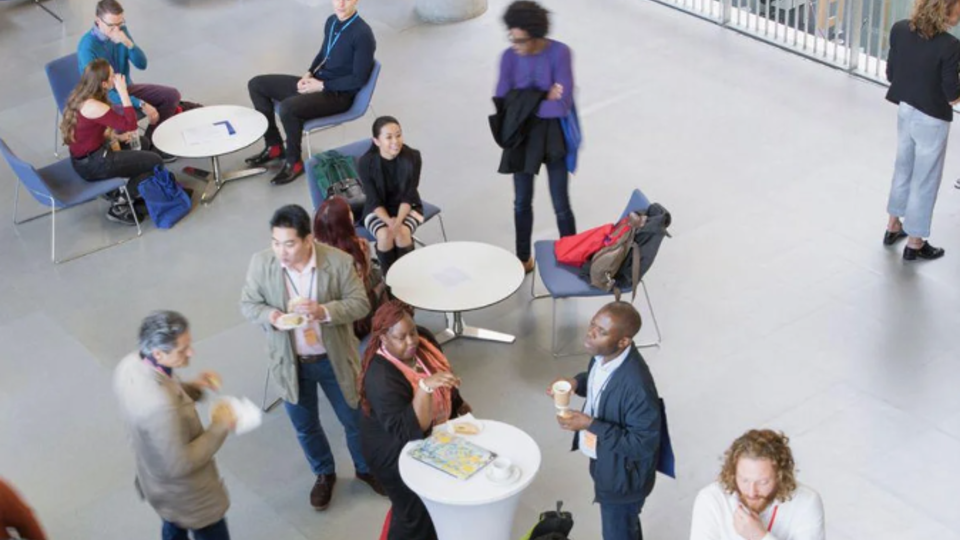
Navigating Business and Radiology Leadership: Meet Executive MBA student Anu Athota Shultz
Learn about Anu's enriching student experience, combining rigorous academic insights with real-world applications to elevate her healthcare career.

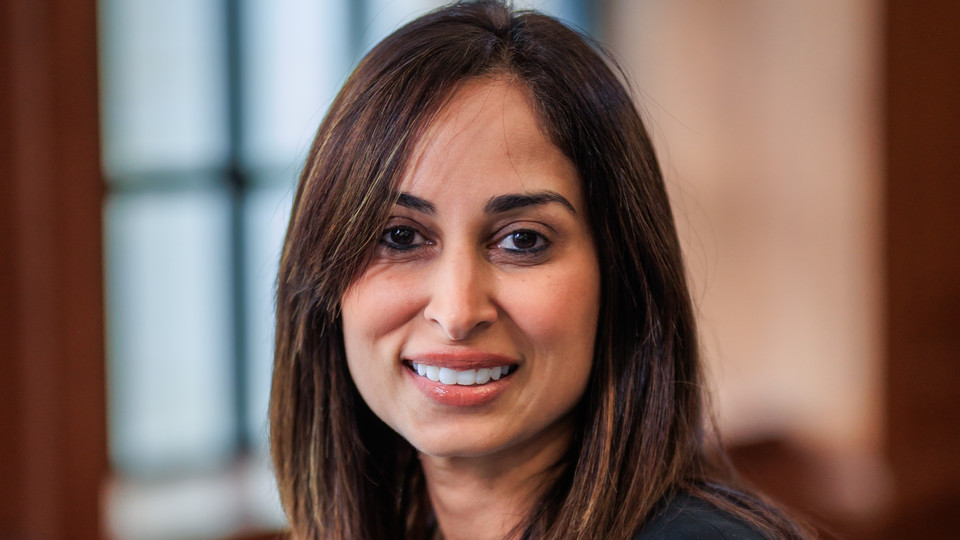
Education and Career Training
- Undergraduate: Miami University
- Medical School: University of Arkansas for Medical Sciences (Honors in Research, Alpha Omega Alpha National Medical Honor Society member)
- Internship and Residency (Diagnostic Radiology): UT Southwestern Medical Center/Parkland Memorial Hospital
- Fellowship (Breast Imaging): Washington University/Mallinckrodt Institute of Radiology/Barnes-Jewish Hospital
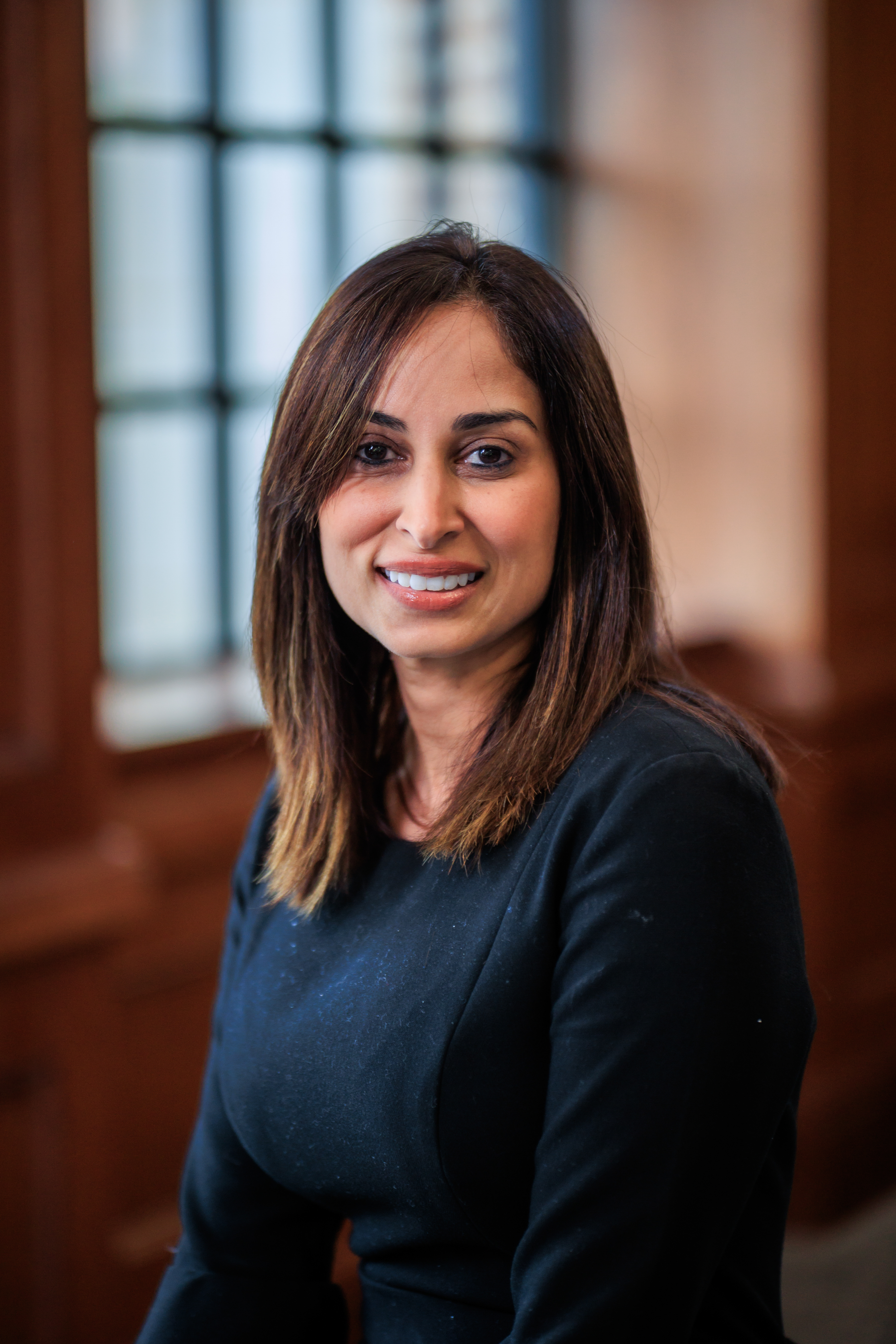
Current Roles and Career Journey
After completing my medical training in 2007, I practiced both diagnostic general radiology and breast imaging specialized radiology (as the only female partner) in Mountain Home Radiology Consultants until 2011. I then joined Rose Imaging Specialists, a supermajority female partnership and practice that specialized in breast imaging diagnostic radiology and research. Rose-Imaging Specialists and Radiology Partners merged in 2021, and I joined their local practice board in 2023.
My current roles include:
- Local practice board member for Rose Imaging Specialists-Radiology Partners
- Legacy partner at Rose Imaging Specialists-Radiology Partners
- Lead interpreting physician for Solis Mammography Sugar Land
- Wife of Erik Shultz, MD FACOG: OB/GYN at Texas Children’s Hospital Women’s Pavilion/Partners in OB/GYN Care
- Mother of four children: Chethan 19, Jayan 17, Milan 15 and Anika 13
Why did you choose a Rice Business Executive MBA?
The Executive MBA program at Rice emphasizes executive-level leadership, which hones skills in its coursework critical to developing quality physician leadership in the healthcare industry. The experience has shown me how influential the business aspect of medicine is in patient care and physicians’ ability to provide quality healthcare. Additionally, medical education is often remiss in teaching physicians how to be truly effective leaders.
What do you enjoy the most about being a Rice MBA student?
My favorite part of being a Rice MBA student is being in class and getting to know an excellent group of highly accomplished, successful and incredibly talented professionals from a wide variety of industries. I have also been extremely impressed with the high quality of professors teaching us. They are academically impressive and exhibit a true passion and care for teaching.
How does the program positively impact you at work, and can you share an example of applying what you learned on the job?
The program has taught me to be a more impactful leader in my organization. It has helped to give me confidence around areas of strength and challenged me to improve in areas of weakness, all in a supportive and professional manner. I am so thankful for having the opportunity to be a part of Rice Business and the Executive MBA program.
Anu Athota Shultz is an Executive MBA student in the Class of 2025.
The Rice MBA
Ken Jett joins Rice’s Operations, Finance and Support as vice president of facilities and capital planning
Rice University’s Division of Operations, Finance and Support announced that Rice Business alum Ken Jett will join as vice president of facilities and capital planning and president of the Rice Real Estate Company starting April 1. He will also serve on the president’s cabinet.
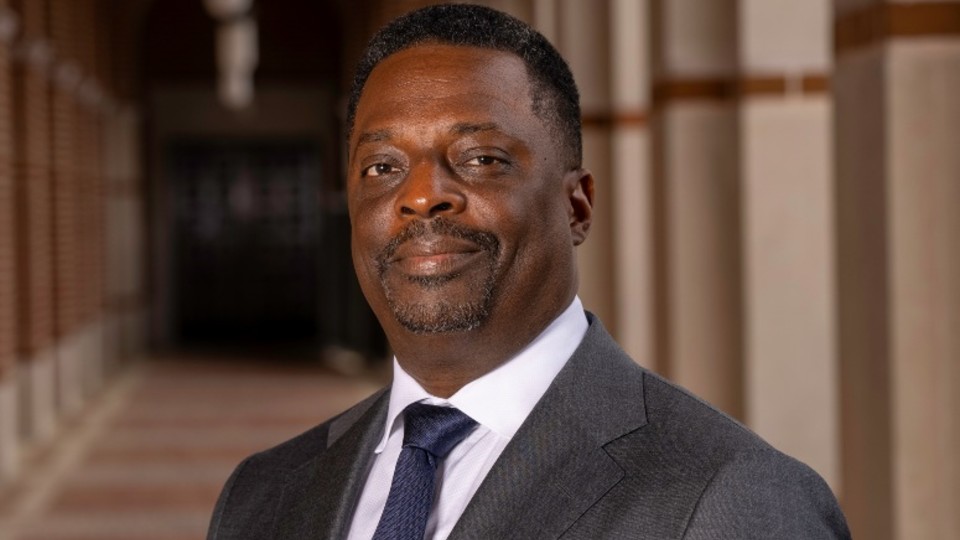
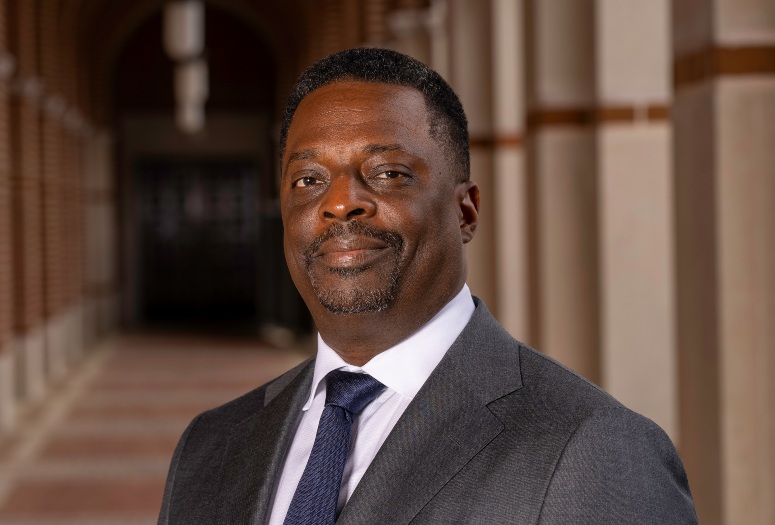
Rice University’s Division of Operations, Finance and Support announced that Ken Jett will join as vice president of facilities and capital planning and president of the Rice Real Estate Company starting April 1. He will also serve on the president’s cabinet.
“I am excited to welcome Ken to the leadership team and to working with him to create long-term growth and financial sustainability for the Rice community,” President Reginald DesRoches said. “This is an important role in the ongoing success and growth of our university, and Ken has the experience and skills to take us far in these areas.”
In his role, Jett will partner with Rice’s real estate teams to advance a new chapter in service of the university’s mission to create long-term growth and financial sustainability for the benefit of students, faculty, staff and the community.
“Ken is known for navigating complex organizations and building consensus among partners, customers and stakeholders,” said Kelly Fox, executive vice president for operations, finance and support. “His expertise and leadership skills will be invaluable as he joins the president’s cabinet and leads our strategic initiatives in capital planning, facilities and real estate development. With Ken’s arrival, we turn a new leaf in our ongoing efforts to excel in physical and capital asset management.”
Jett joins Rice after more than two decades of comprehensive commercial real estate investment management experience and has a proven track record of thriving in complex organizations by building relationships and consensus with partners, customers and key stakeholders.
Prior to joining Rice, Jett worked with Hines Interests, where he serviced a variety of portfolios and demonstrated consistent promotion within the company.
He earned a bachelor’s degree in political science from University of California, Davis and a master’s of business administration from Rice.
“This new role is especially meaningful to me as a Rice alum, presenting a unique opportunity to support real estate activities in a place that has been instrumental to my personal and professional journey,” Jett said.
You May Also Like

Rice University’s Jesse H. Jones Graduate School of Business today announced the launch of its Graduate Certificate in Healthcare Management program, a 10-month, credit-bearing professional credential designed for current and aspiring leaders seeking deep expertise in the business of healthcare.
The Fundamental Principles of Disruption feat. T. Canady Barton ’10
Season 4, Episode 12
With a background in chemical engineering, T. pivoted to cloud strategy and delivery, working for major companies like Google. She's now pursuing entrepreneurship with BlackBoxx, redefining care packages. T. talks about joy and passion in her career, satisfaction in entrepreneurship, and shaping her legacy.
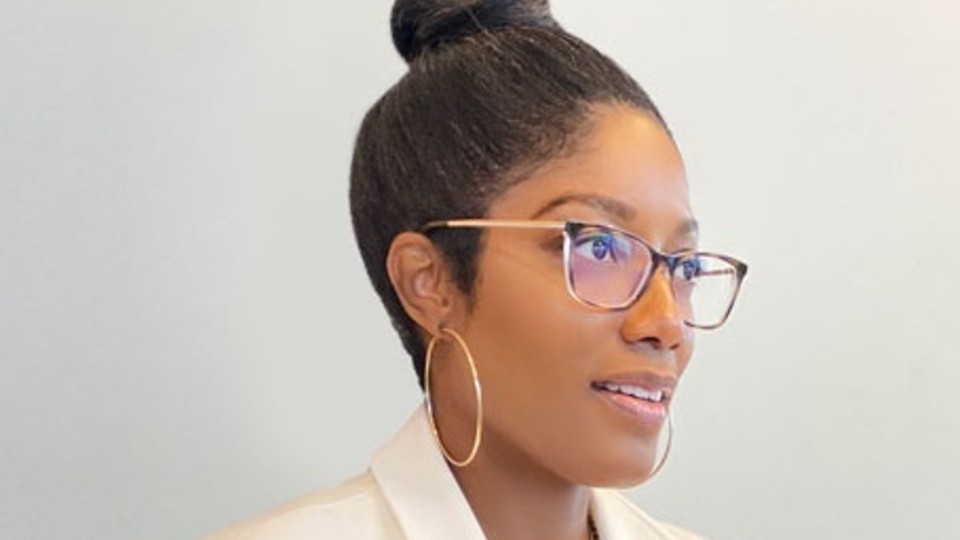
Owl Have You Know
Season 4, Episode 12
Scott Gale '19 interviews T. Canady Barton. With a background in chemical engineering, she pivoted to cloud strategy and delivery, working with major companies. She joined Google in 2020 and was head of strategy and operations for YouTube marketing, before becoming the customer experience and innovation leader at Google Cloud Consulting.
She's now pursuing entrepreneurship with BlackBoxx, redefining care packages. T. talks about joy and passion in her career, satisfaction in entrepreneurship, and shaping her legacy.
Subscribe to Owl Have You Know on Apple Podcasts, Spotify, Youtube or wherever you find your favorite podcasts.
Episode Transcript
-
[00:00:00]Intro: Welcome to Owl Have You Know, a podcast from Rice Business. This episode is part of our Pivot Series, where guests share stories of transformation in their lives and careers.
Thank you for coming to check out this episode of Owl Have You Know, a Rice Business Podcast. I'm Scott Gale, one of the hosts here on the show. And for today's episode, I'm joined by T. Canady Barton, a 2010 graduate of the professional MBA program at Rice. We explore her journey from engineer to corporate disruptor to entrepreneur and everywhere in between.
Don't forget to subscribe, like, and share. Enjoy the show!
[00:00:37]Scott: All right, welcome to Owl Have You Know. I am joined today by Taneshia Canady Barton, better known as T, Professional MBA from Rice, graduated in 2010. T, welcome to the show.
[00:00:50]T. Canady: Thank you. Thanks so much for having me.
[00:00:52]Scott: So excited to have this conversation. Lots of things to just cannonball into. As I look across your resume, T, you've got some of the world's biggest company names on your resume. And so, I want to get into that, but, kind of, take us back. You're a chemical engineer by training. Why chemical engineering?
[00:01:11]T. Canady: It was hard for me to decide what to major in. And I wanted to pick something that left me lots of flexibility. You know, growing up, what you hear, at least in my neighborhood, was, you know, you want to be a doctor, lawyer, engineer. And so, engineering was one of those things where, “Okay, if I have to pick one, then if I'm an engineer, then I can still go and be a lawyer or a doctor.” People like engineers, right? I was really good at math and science. I loved chemistry, still do. I nerd out at the periodic table, all of that. And so, I thought about biomedical and I thought about a lot of different fields, but that seemed to be the one that was most flexible, left me the most options, honestly.
So, it was all about, “Well, where do I go from here?” And since I wasn't 1,000% sure, I wanted to leave the doors open. So, that's, kind of, how I landed on it. And I stayed with it. Despite all of the falling soldiers on my sides, I decided to stick it out. And I'm glad I did.
I think, one of the biggest things about chemical engineering that people don't really understand is that it's really about process and how to solve a problem, not the exact answer. You could totally ace a chemical engineering test without having the precise answer. That's good, but they care more about how you think. And so, it actually ended up being a really good fit.
[00:02:30]Scott: Love that. As a recovered chemical engineer myself, I appreciate the perspective on that. So cool, that problem-solving capability that, sort of, comes along with it. Tell us about, kind of, your first job out of undergrad. What, kind of, led to that? What was, kind of, your thinking? What was, sort of, that next step from, “Hey, I like math and science. I'm out here doing something challenging, learning how to solve problems? Like, what was, kind of, that thinking early in your career?
[00:02:56]T. Canady: Right. So, it actually started, kind of, pre-graduation. I had a ton of internships, some of which I found things that I really, really love, like, new business development, exploring, innovation, all of those types of things. The chemical plant, per se, was not my forte. I was wearing steel toe boots all the time, and, you know, just the different things that come with that.
It was not really my jam, but there were a lot of things that I liked about it. And, for me, it was, you know, going into graduation, again, still that same mindset of I want to keep my options open. I'm not exactly sure where I'm going to land, but there are things I know I like and things I know that, you know, I prefer to do less of.
And when I was making considerations, it was really roles that were more sales-focused, roles that were more business-focused, and then roles that were deeply, deeply technical in a very specific niche. And at that time, I didn't know what I wanted my niche to be, but I did know that I wanted to be on the commercial end.
And so, I ended up going into global services at ExxonMobil. And one of the main reasons is because of the international view of things, the complexity of the business, and then the ability to work with so many different functions on a daily basis to really drive business decisions. I mean, you go into a company like ExxonMobil, and they give you so much responsibility so quickly because they've hired people that they can really trust. And at that time, they had a huge drive to get engineers into the business space because they felt that we could understand the business more deeply.
And so, it was actually a really great fit. And that's how I made my decision. I often look back now, though, and say, “I wonder what would have happened if I would have chosen a role in sales,” because in so much of the work I do now, there is a sales function of it, right? You either are training salespeople, working very closely with salespeople. And so, I'm very adjacent to that role. But at the time, it was wanting to have a bigger impact and a broader focus. And I think that still holds true today. I like to do things that have bigger impact and broader focus.
[00:05:08]Scott: I mean, Exxon's a world-class spot to land for an engineer. Sort of joke, when you get a bachelor's degree in chemical engineering, you can't, like, engineer your way out of a paper bag. But you go to a company that can, you know, then teach you how to do that. And so, understanding, kind of, the trappings around that. You then pivoted from ExxonMobil to, was it IBM?
[00:05:29]T. Canady: Oh, boy. It was a, kind of, windy path. So, one of the things, like I said, I was, I was still exploring. I mean, that's what you do at 18, 22 years old. You're still exploring, you're still figuring out who you are, what you love. And, you know, there were so many things that I really loved about ExxonMobil.
Again, I worked with legal, I worked with warranty, I worked with huge projects overseas, I worked with all the major stakeholders with these huge exploration projects and production projects and so many great things. But the one thing that my heart was missing was innovation and a quicker pace. We know that, you know, in oil and gas, things tend to take a very long time to develop. And you have to pay your dues. It's just what it is. And so, there's people that have been there before you, that have earned the right to move on more quickly than you have. And one of the things I wanted to do is, I was getting promoted, I was getting awarded, but I wasn't necessarily getting more opportunities to innovate and, kind of, build business.
And so, really hard decision, but I decided to walk away and do some more exploration from an entrepreneurial standpoint. And so, my now husband and I decided to move out of the state of Texas and go to Atlanta and start exploring there. And so, he was graduating. And he was with a firm that allowed him to have a base there. And I just started to go deep into tech, right? And I just started to shadow anybody that would allow it. I just had lots of conversations. I translated what I learned in all my years of schooling at ExxonMobil and got into a role in a tech company and a tech organization where I could just basically translate those skills.
And from that, I ended up… because of all these other skills, I ended up leading major innovation projects. And it went from project management to program management to portfolio management. And over a very few number of years, because of this, just, passion that I had for execution and innovation, it just, it skyrocketed.
And so, I feel like, being in Atlanta were some of my most fundamental informative years, because just the environment that just was so conducive to allow me to, what I like to say, fly, they didn't have as many barriers around me on where I could move or where I could go. If you could prove you could do the work, you could do it. If you could shine there, they let you shine.
And so, yeah, I did work for IBM. I also worked with InterContinental Hotels Group. Still friends with so many people there. I worked for several companies that are just so much of a part of who I am today, have helped make me who I am today.
[00:08:11]Scott: That's so awesome. Was there, sort of… I'm interested in, sort of, like, the motivators for you. Or, were there mentors or people that you look up to or somebody's story that you were, sort of, like, “I can, I… that's what I want to go do?” Was it just, sort of, more internally driven or was it…
[00:08:26]T. Canady: I wish I knew, Scott. I wish I knew, because I'm trying to figure out who this person is and where she came from. I think my biggest driver was just do something big, like, you need to do something. And I've said before that my only fear in life has ever been, really, mediocrity. And I just knew that whatever I did, it needed to have big impact. Like, it needed to be significant. I don't show up to hold space, you know, and just take up space and not do anything with it.
And so, I think that was… well, it's my motivator. I remember being, like, 11, 12 years old and sitting on the curb outside of my house and watching cars go by and thinking, “Where are these people going? What are they doing?” I wonder if they're happy doing what they do. And I wish I could do more to help more people find joy in what they're doing every day because I saw so many people that just went to work. That is what they did. They went to work. It was a means to an end. It was something that they had to do. It was not a pleasure, necessarily, right?
You found joy in it in some ways, but it was not a pleasure. And so, no, I didn't have, in my immediate vicinity, people that, you know, were doing things I wanted to do. I don't, it hadn't even been invented at that point. You know, transformation, innovation was not really the talk of the town. It was, make the donut, right? Like, just do it. Or at least in the circles that I was in.
But I do remember one time seeing…I think it was 2020. And recently, I tried to find this. And I think the company, I don't want to mess up the company name, but they were doing innovation. And something sparked in me so loudly, I could almost hear it, where they were talking about how they were creating products and what the innovation process was. All of the things that had to do with that and how it was this think tank and, you know, how they made it all happen and they brought new things to life, that is what I gravitated towards. And I think, for a long time, without knowing it, that's what I was chasing.
[00:10:29]Scott: Love that. Thank you for sharing. I think that's so cool. And I'm… I want to ask, the time that you've spent, sort of, thinking about disruption and innovation, like, to think about it as, like, you know, these big organizations have this weight of incumbency and they just, kind of, have the way they do things, what are some of the, like, fundamental principles of disruption, in your view, from your learnings? Just curious around the…any commonalities in that, or things to look out for when you're trying to disrupt a big incumbent.
[00:10:56]T. Canady: Well, I'll say loud and clear that nobody has it figured out. Nobody has it figured out. There's not some magic wand. There's not some special formula. Nobody has it figured out. Everybody's trying to figure it out in their own way. And I think the common thread that people get to — or should get to — is that we're still in the people business. No matter what business you're in, you're in the people business.
And it doesn't matter how great your idea is. It doesn't matter how much money you're going to make. If people can't understand it and people don't buy into it and they don't understand how to use it, it doesn't matter.
And so, our job as technologists, our job as business leaders is to make it easy to understand, to simplify the process, to make it easy for them to get to, for them to explain to their team. So, it trickles down. If we don't do that, it really doesn't matter. It's not going to go very far. And so, I think those are the common things people get to... It's hard. It is hard. Anything worth doing usually is. It has some hard part about it. Your idea can be brilliant, but implementation matters. Adoption matters. And how do you get that, right? It's not just talking to the C-suite. Of course, you need their buy-in. You need them to validate and adopt it themselves. But you got to get to the heart of the people in any organization. You got to go to every single level of that organization and make sure people are clear, that they're bought in, they understand it, and you're moving whatever roadblocks you have to to do it. You got to stay scrappy. You got to have grit. And, you know, if you really want to make it happen, you got to show the passion.
[00:12:35]Scott: Yeah. It's not just the technology or the, you know, the change. It's the human psychology of it, such an important feature and factor to solve for along the way. I want to talk about Rice. You graduated in 2010. So, the financial crisis was, you know, happening through your MBA experience.
[00:12:53]T. Canady: Yeah. I was in Atlanta. At the time, was buying a house in Texas during this crisis that you speak of. So, my… now he's my husband, we were married while we were in Atlanta. And we just knew we were coming back to Texas. Texas is home, and we knew we would be coming back at some point in time. And we, kind of, made the decision that, “Now was the time to come back.”
But it took us about two-plus years to find the space we wanted to land. And during that time, I did look at other MBA programs. Texas is very fortunate to have some stellar programming, right? I can name a few, and I will not. However, Rice stood out for me for a number of different reasons.
One is the legacy. Rice, the name speaks for itself. You know, you have a lot of pride when you speak about the alumni that have come from Rice, the statue of the organization itself, how it always competes on every level, particularly academically.
I almost went to Rice undergrad, is what people don't know. Almost went to Rice undergrad. I came for an athletic visit. I felt like this was my time to get that opportunity to come. The alumni and the recruiting staff were so warm. They were so inviting. They really made me feel at home. It was one of the few programs, particularly at the time, that as a working professional, I didn't have to do it online. I could be on the beautiful campus, which means that I could connect more deeply with my colleagues.
The rigor that it takes to get a Rice MBA, right? I did not want something that was not going to make me deep-think or that was not going to have me connect in the classroom in a way that I was having just as much learning from my peers as I did from my teachers.
And so, when I thought about all of that — the brand, the connection, the network, the rigor — it was an easy choice, actually.
[00:14:42]Scott: I think this is such an important topic, because I think there's a lot of discussion about how to engage alumni. And there's a subset of people who go get MBAs, and they pay their tuition, and they get their piece of paper, and they, kind of, move on. I like to say, like you, you get half the value of your MBA on graduation day and you spend the rest of your life chasing the other half. And I think that you're a representation of that.
I want to talk about your entrepreneurial experience. I've got a couple of company names in front of me that you founded: BlackBoxx, ThinkPower. Probably missing some. Like, talk me through the entrepreneurial experience.
[00:15:17]T. Canady: So, let's start with, kind of, why. I think, growing up, you know, we talked about, what did you have around you or what made you decide chemical engineering or to do these different paths? I saw entrepreneurship around me. It was not necessarily successful entrepreneurship, but I did see entrepreneurship. And I saw the reward of building something your own. Even if it didn't always net the result that you were hoping for, even if it didn't lead to insane riches, I saw the satisfaction of building something with your own hands, right? Whether it was a lawn service or a dealership or a retail store.
And that fire is just something special, when you see someone giving all to build something new and take that chance and go out there and bet on themselves. I think that fire was fueled from a young age when I saw it. And I thought, you know, “I wish I could help them do this more successfully.” And as I got older, I was able to contribute to several friends and family members’ business to help them think through things to help their business be more successful.
So, of course, you know, my husband and I, we were both working full time, but we decided our first business was actually a pressure washing business. Another little known fact. Imagine me in a big yellow wetsuit. I did that. I washed apartment buildings when I had to. But it was, you know, his dream, right? It was his dream. He wanted to do this for many different reasons. And so, I was on the side, doing all the things to make it happen. It didn't matter if it was the marketing, the sales, the customer acquisition. It didn't matter. Whatever it took, that's what we were doing.
And so, we did that for several years, had lots of people coming to us asking how to build business. And then, that ended up going into a business consulting firm about execution, management consulting, all the things that are required to build a business.
And then, you know, we did go back and forth a bit, where we would have people ask for us to come in and work at their company, basically, like a loaned leader, a loaned executive in some of these companies. And so, we did that. And so, it was a lot of mix. Entrepreneurship for us hasn't been this straight path where you just run with this one business. It's been, “Take this learning, apply it to a new business, help other people build business with it, go work back in corporate for a little bit, and, you know, use those skills to help build organizations and entities within those businesses.” It definitely hasn't been a straight path, but it's been a very rewarding one, because we have still been able to have impact.
I think sometimes we put these blinders on, like, “I'm going to be an entrepreneur. That's the only thing I'm going to do.” But I think when you have a greater purpose, you realize that you can do it both ways. It's just timing of what makes sense to do what. And so, I've had no problem going back and forth or, you know, running… letting this business run itself. It's just about what do you want your focus to be?
And I think another thing that has come as I, again, explore entrepreneurship, and keeping that lasting legacy, is that it's just that. You go from wanting a job, and then I thought I wanted a career. But then, what I've come to realize is that I really just wanted legacy. Sometimes, that's built by how many different organizations you can touch to make them better. How can you grow business? How can you plant seeds of innovation and growth in other places to see other businesses thrive? Like, what is it that you want your legacy to be? And don't bottle that up. You know, you can be an intrapreneur, which I've done that as well. You can, you know, step back outside when it makes sense for you. But don't, you know, sacrifice yourself because you just have to have this name title. And that goes with corporate as well. Just because you want to be, you know, a certain level or a certain title, you do your best work where you are and then it will figure itself out. And if that means you step aside and grow something else, then you should be free to do that. You should understand where your talents are best utilized for that point in time and not, you know, suffer or suffocate yourself because you can't get something out to the world that you really want to get out.
[00:19:28]Scott: For, kind of, the aspiring entrepreneur out there, you, kind of, have to opt into an entrepreneurial experience in some ways, and there's some, you know, camps that, sort of, say, like, entrepreneurs are, kind of, born, that you have to have, you know, a specific personality or a specific whatever, and then there's a lot of entrepreneurship that can be learned. And I love this intrapreneurship, entrepreneurship kind of thing. It's like, it's like a dissatisfaction with how the world runs. And so, curious to know, like, advice that you would give to aspiring entrepreneurs or people that want to have more of that impact. How do you self-select in or identify, what are some of the characteristics?
[00:20:09]T. Canady: Yeah. For me, I'll say greatest success has come when I was really clear on the purpose behind it. Not always the product being the most crystal clear, not always the market being the most crystal clear, because I think that evolves over time. And I think sometimes it's even greater than you expected. Sometimes we limit ourselves on the reach we think we can have. But being really clear on the purpose, like, what do I intend to do, what is the job that needs to be done here, and how do I see this evolving, right? And just, kind of, think through just, like, three years, five years on what you would like to see happen.
I think my biggest issue, if I can call it that, was not dreaming big enough. And so, I often ask myself, “Well, why don't you go do that? Like, what's stopping you, really stopping you from going to do this idea that you have?” You can start these things wherever you are. Whatever your employment status is, you can start that thing.
What you have to be clear on, again, is the purpose. And then, start to craft something. Get it out there in the world. Trial it out, right? Don't make too many assumptions. But once you understand the purpose, the job to be done, and you have an idea of the product, start testing it. Start seeing who that audience might be. Start exploring a little bit. Ask questions. Get it out to people. Start with friendlies, right, to see what that looks like.
And then, be prepared, because it's not, it's not easy. It's not for the fainted heart. And if you decide that you want to jump into it, you do need to be, you know, somewhat financially prepared. I think sometimes we overdo it, right? And we think, “I got to have 10 years of savings.” Well, maybe not 10 years, but, you know, you do need to be prepared, though, if you want to buy a house, right? This may not be the time. So, there's definitely sacrifices that need to be made. You need to make sure you have accountability partners. You need to make sure that your significant others are on board.
Those are some of the things to just prepare yourself in the immediate for entrepreneurship. Is this something you're willing to sacrifice for? Are these things, you know, as Dave Ramsey says, are these things you're willing to go beans and rice for, if it took that? Or, is it superficial? Because a lot of times, if it is something that is purpose-driven, you are willing to do that. You are willing to make those sacrifices. You're willing to do the things, the hard things. You're less likely to give up because of some dissatisfaction somewhere. So, really center yourself around, what is that thing I feel like I have to get out there? Who are going to be the people that help me to just be accountable? They may not be the people that know everything about your product, but they may be the people that know you deeply enough to know why you're driving to do this and to keep you accountable to your purpose — not just to the business, but to your purpose.
[00:23:03]Scott: Entrepreneurship isn't a vanity project. It's like a lifestyle, right?
[00:23:07]T. Canady: It's not a vanity project. You know, we hear all the… especially now with tech and everything, we hear all these success stories and people going, you know, IPO and all these fabulous things. And the 12-year overnight success story, it's more likely the scenario, right, where people have been grinding in their garage for so many years because they were so passionate about this theme. And then, look at how many of them started with this one product. They ended up being something totally different. But what was the thing that was the same? It was the passion. It was the purpose. They had an intention. And it may have evolved a bit, but that intention, that purpose usually remains pretty pure and pretty much to the core, significantly similar, I'll say.
[00:23:54]Scott: Yeah, have clarity of the “why” and build from there.
[00:23:57]T. Canady: Yeah. What, what is your “why?” Because if you're just out here doing it, it's not going to last long.
[00:24:03]Scott: Yeah, and it's tough enough you'll be completely miserable and lose yourself along the way.
[00:24:09]T. Canady: And I was doing entrepreneurship when I did the Rice MBA program. So, I really had to be committed because I didn't have anybody footing the bill for that, right? So, it was like all-in committed to getting what I needed to know in order to scale, in order to connect, you know, more deeply. And regardless of which business, you know, or which time, just what do I need to get here?
[00:24:35]Scott: Comparing and contrasting your career pre-Rice experience, post-Rice experience, is there anything that stands out that came through from that Rice experience that is now folded into your approach, things, or experiences, or moments, or connections, part of the network, whatever that contributed to what you're working on now?
[00:24:58]T. Canady: I feel like Rice validated my insanity. Like, this wild idea that I could do these crazy, crazy things, right? I think, before, you know, the possibility was stronger that I was going after particular roles, particular titles, and things like that. And the MBA would be a feather in my hat to help me get that or be validated in some kind of way, even though I had the experience.
I think what ends up happening on the other side is that I became more rooted in who I really am and what I really aspire to be and less apologetic about that, because I had a community of people that, you know, sometimes are just as crazy as I, or at least were validating, saying, “No, you should do that. You're this enough. You're that enough. I would buy that. I would do that. I believe in you.” Whatever it is you need your tribe, right?
And so, I think with Rice, it's definitely one of, you know, those tribes that has helped to validate that crazy a little bit. And then, when you have professors that are willing to sit down and talk you through any points that you may be having concerns with, whether it's marketing, whether it's pricing, whether it's selling, and you're sitting in classes, like, with the late great Al Napier, who's telling you to be rooted in your vision and what you want your legacy to be when you're 70, 80 years old, and making you think about that now as a 20, 30-year-old somebody, and thinking about, “Well, what do I want to be said when I'm 90, when I'm 80? And how do I get to that?” When you have other professors who have been successful entrepreneurs coming back and talking through you about, not just the sunshiny parts, but the hard parts, and willing to sit down again at any time to talk you through whatever it is you need to talk through, it makes you a better person. It makes you a more willing entrepreneur.
I think if you already have that itch, it makes you feel like it's even more possible and that you're not alone doing it. Because I think, as entrepreneurs, so many times you feel like you're on an island, right? And you feel like you have to do everything on your own. And I've certainly been that. And I've certainly done that. But now, I'm much more inclined to pick up a phone, to send a text, whatever it is to get an answer, to get an idea, whatever it is to just make a connection, whatever it is I need at that time. I feel like I'm much more willing to do that because of that community.
[00:27:39]Scott: A bit of what you're describing, I like to say, kind of, living a life that echoes. In the spirit of that, like, reverberation, we've been talking a lot about the past. I want to talk a little bit about the here and now. Like, tell us a bit about what you're doing, what you're working on. Like, what's on the horizon?
[00:27:55]T. Canady: Yes. So, right now, I'm completely committed to legacy-building. It's a little early. Some people might say that. But I feel like it starts… like, you have to be very intentional about that. So, every project that I'm taking on right now has to have elements of leaving a legacy for, not only my family, but for other families. And so, it's about leaving those nuggets of innovation and helping people to build their business, whether it's a small one or a large one. It doesn't matter. To me, it's really about fueling that entrepreneurial fire inside and outside of corporate.
For my family, you know, what does that look like, as I sow seeds into my children, into my two girls, right? What does that look like? As I restart a passion project, I like to say, that's all about just that — empowering entrepreneurs, building brands, helping people to connect more deeply, and just sharing pure joy. Those are the types of things I'm focused on right now.
[00:29:02]Scott: Thank you for sharing your spirit of rebellion and entrepreneurship and all these things. It's so awesome. Been an inspirational conversation. Any last thoughts that you would like to, kind of, share or maybe said another way, advice you would give or people considering a Rice experience, however you want to shape it?
[00:29:19]T. Canady: Do it. Don't blink, you know. And I was going to tell you this. When I started the process, I did look at, you know, other organizations, but when I actually applied, I only applied to Rice. Like, it was that clear to me. So, what would I have done? I don't know. But I was so committed and so sure about my choice. It was the only place I actually applied to. That's how strongly I felt about it. And I think it was absolutely the best choice, the right choice.
For those aspiring entrepreneurs, I say, go for it. You know, start somewhere. Start now. Don't wait. Dream bigger. Nobody's coming to save us, you know. Like you've got to start yourself. Show the proof. Be the proof. And just go for it. Like, just live your biggest, loudest life possible, at least on paper, right? Like, live that life that you wrote down. What is important to you? And live that life.
[00:30:16]Scott: Thank you for being awesome. Thank you for being on the show. It was a real privilege.
[00:30:20]T. Canady: My pleasure. Thank you, Scott.
[00:30:23]Outro: Thanks for listening. This has been Owl Have You Know, a production of Rice Business. You can find more information about our guests, hosts, and announcements on our website, business.rice.edu. Please subscribe and leave a rating wherever you find your favorite podcasts. We'd love to hear what you think. The hosts of Owl Have You Know are myself, Scott Gale, and Maya Pomroy.
You May Also Like
To vape or not to vape: When an e-cigarette tax has an impact
E-cigarettes have become a big concern for public health, especially when it comes to young people using these harmful products. A new study co-authored by Rice Business professor Piyush Anand seeks to cut through the barrier to data for the underage category.

Meet Shawn Tittle, an Executive MBA student and impact driver at Houston Methodist
Explore how Shawn's Executive MBA experience redefines his daily interactions with economic frameworks and operational leadership challenges.
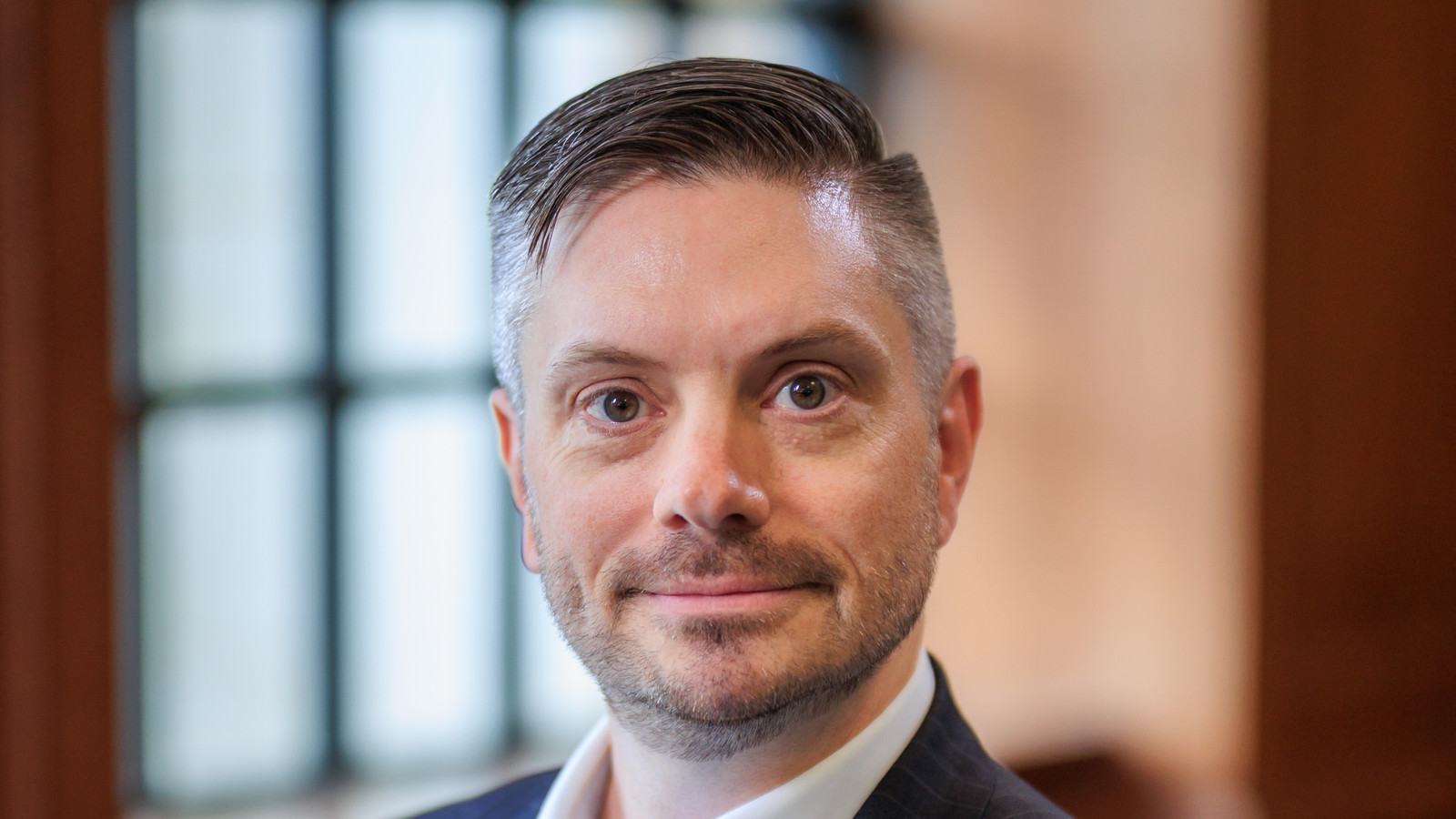
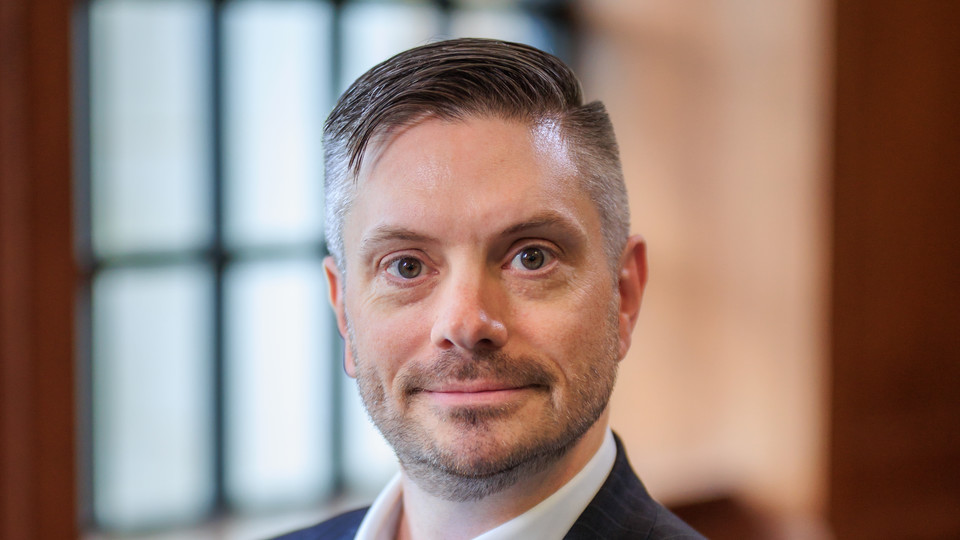
Undergraduate and Graduate Institutions
Lipscomb University (BA)
Wayne State School of Medicine (MD)
Current Role and Career Journey
As part of my role, I oversee all aspects of safety, quality and patient outcomes across our inpatient and outpatient facilities. The departments under my oversight include data analytics, reporting on both external and internal metrics, patient safety, process engineering, accreditation, clinical informatics and infection control.
For my medical training, I completed a general surgery residency at Saint Mary's Hospital in Connecticut followed by a cardiothoracic surgery residency at the Yale University School of Medicine—Yale New Haven Hospital.
Earlier in my career, I worked as chief of thoracic surgery at Norwalk Hospital in Connecticut and held an academic appointment as a clinical assistant professor of surgery at the University of Vermont School of Medicine. Before joining Houston Methodist in 2016, I served as chief medical officer and chief quality officer at Houston Methodist Baytown Hospital.
Why did you choose a Rice Business Executive MBA?
I had a conversation with Dr. Marc Boom, our system CEO, about development opportunities at this stage of my career, and he suggested I take a look at top-notch MBA programs around the country. I felt so fortunate to have Rice, a top program in my own neighborhood, and with the ongoing cooperation between our institutions, it could not be a better fit.
What do you enjoy the most about being a Rice MBA student?
It is tough for me to pick a “most” about being a Rice MBA student. If I had to pick one, it will be the people. A very closely related “most” is the culture of Rice Business. I am grateful to have Rice in the city where I live and work, and the ability to experience the social events and campus offerings is stellar. I try to attend something weekly!
How does the program positively impact you at work, and can you share an example of applying what you learned on the job?
First, the program has fundamentally, permanently changed the way I look at economic data and news, forecasts and Fed meetings. The perspective I’ve gained, even from the first semester, is quite eye-opening and a real testament to the strength of the curriculum. Second, Ginger Vaughn and the executive seminar is fabulous. I’ve used material learned from Professor Zhou and negotiation, the crisis management seminar and Professor Smith and his leadership course on the next business day in my own office. Every course has application, and some are immediately apparent. I could not recommend this program more highly.
Shawn Tittle is an Executive MBA student in the Class of 2025.
The Rice MBA
To Adapt During Crisis, Take a Lesson From Jazz
Three critical leadership strategies that helped two prominent symphonies transform during the pandemic.


CHECK OUT THIS EPISODE OF OWL HAVE YOU KNOW
By Scott Sonenshein, originally published in MIT Sloan Management Review.
How can leaders inspire agility during a crisis? Learn three critical leadership strategies that helped two prominent symphonies transform during the pandemic.
Crises, whether supply chain disruptions, natural disasters, or the arrival of an upstart rival, are a revealing moment for leaders. Such scenarios can push companies to the brink of meltdown or usher in dramatic organizational transformation. Whether an organization withers or thrives during a crisis is shaped by its resourcefulness—how it uses its existing resources.
The pandemic decimated many industries, but the performing arts industry faced especially grave challenges: rampant unemployment, limited prospects for revenue, and an existential crisis over the relevance of the arts in dire times. Initially, musicians could not congregate to practice, performance halls were shuttered, and classical music was the last thing on the public’s mind.
As tough as these circumstances appeared to be, what collaborator Kristen Nault and I learned during a multiyear study of two prominent orchestras surprised us: Not only was it possible to survive trying times, but it was also possible to emerge better because of them. The leadership key? Becoming nimbler by thinking more like jazz ensembles and less like classical orchestras.
Business leaders often call this agility, but for a musician, this is the realm of jazz improvisation. Our research found three critical changes in leadership practices that helped leaders facing disruptions act like talented jazz musicians. Leaders in any industry can apply these practices during their organization’s next crisis.
The Resource Paradox During a Crisis
An organization’s most significant challenge during a crisis is that it typically needs resources — including time, money, expertise, equipment, and connections — at a time when activating resources has become more difficult. When faced with high levels of uncertainty, a leader’s first instinct might be to pare down investments to lower the risk of worst case outcomes. Ironically, such defensive behaviors can contribute to the organization’s demise. Threat rigidity sets in, with the leader doubling down on old habits and control mechanisms that make it difficult to harness the full potential of resources.
Instead of fearing crises, leaders can learn to embrace their hidden benefits. And by following the adage “Necessity is the mother of invention,” organizations can unlock the full power of their existing resources to respond to a challenge. Research on resourcefulness finds that when leaders take this approach, they can foster collective creativity to help groups solve problems in adverse times.
During the COVID-19 pandemic, many businesses discovered ways to access more knowledge (to understand how to repurpose products and services), capital (to invest in IT infrastructure), and connections (to identify new markets for revised products and services). Resourcefulness helped businesses pivot: Bakeries pivoted to selling raw ingredients for home chefs, clothing companies to producing face masks, vacuum manufacturer Dyson to designing a ventilator in 10 days, and distilleries to manufacturing hand sanitizer.
A Tale of Two Symphonies — and Leadership Approaches
At the onset of the COVID-19 pandemic, we engaged in a multiyear research study with two of the world’s premier symphony organizations, the Houston Symphony and the Revenite Symphony (a pseudonym because the organization requested confidentiality).
When we began our research, it was an open question as to whether Revenite and the Houston Symphony would survive. Both organizations had struggled financially before the pandemic, with millions of dollars in losses and even more significant budget deficits. Both organizations were also steeped in customs and traditions, which, as any business leader knows, makes change difficult. Yet, crises often produce one valuable resource needed to instigate considerable change: urgency. Urgency makes it possible to rapidly implement changes that might otherwise have taken years (or not happened at all). A lack of urgency dooms many change management initiatives, making its abundance during a crisis an opportunity not to be overlooked. As we interviewed and observed symphony executives, staff members, and musicians, we discovered that the leaders of each organization took very different approaches to addressing the crisis and mobilizing their resources to respond.
Revenite announced a suspension of operations near the start of the pandemic. Its leadership could not envision how to pivot its labor and fixed assets, such as its performance hall, to capture new sources of revenue. As one Revenite executive told me, “I don’t think we had a sense of what the pathway toward restarting the business was going to be. … There were too many unknowns.”
After furloughing all of the musicians and most of its staff, Revenite focused on surviving. The organization radically slashed costs to 25% of the pre-pandemic budget and tried to get the remaining skeleton workforce to increase productivity to keep the symphony chugging along. Leaders sought to wait things out until the pandemic subsided. This defensive strategy led Revenite to constrict resources when the organization needed them most.
Afraid to go broke, the organization retreated — at a significant cost. Revenite lost any relevance to its community at this time of great need. Several difficult-to-replace musicians quit the industry. Trust between leadership and all employees, already strained from the furloughs, further deteriorated as Revenite’s leaders centralized control of the organization and focused on squeezing the remaining labor force to do more. Many employees felt burned out from working long hours with little purpose. No one, including executives, understood the “why” behind the work. As one executive said to me, “I’m working to sustain a thing that has no inherent meaning other than its survival. That’s a really weird place to be. … Our mission is to perform orchestral music.”
In contrast, the Houston Symphony made an early commitment during the pandemic to remain open. It abandoned the long-term planning that symphonies typically engage in (measured in years) and shifted to figuring out the next few weeks — for its concert program, staffing, safety practices, and marketing efforts.
At first, congregating in the performance hall was not allowed due to regulations and safety concerns. So instead, the Houston Symphony turned its musicians’ homes into performance venues. The musicians teamed up with musically talented (but not professional) family members, including partners and children. Instead of relying on a huge production team, the makeshift videos in its Living Room Series of performances were created by a minimal number of staff members. Other orchestras that livestreamed performances tried to re-create the symphony experience on Zoom, with 70-plus musicians appearing in tiny square boxes. The Houston Symphony realized that it would inevitably disappoint its customers by trying to transform a rich in-person experience into a mediocre online one. Instead, it reimagined the delivery of its content by inviting customers to learn about musicians and their families in an intimate setting while listening to enjoyable music.
When the Houston Symphony moved to livestreaming full concerts without an in-person audience, it could reach new geographic markets not possible with in-person-only events. It charged an admission fee for the virtual concerts (which was uncommon) and attracted donations from a wider variety of patrons. This brought in additional resources, such as revenue, new supporters, and media attention, as well as an enhanced reputation among industry peers.
Importantly, these decisions also created extra time for the organization to figure out how to safely and effectively return its patrons to the performance hall, which Houston did long before most other symphonies. However, the organization went further, using the pandemic to usher in a more profound transformation.
Instead of making deep cost cuts and unsustainable workforce reductions like Revenite did in the name of resourcefulness, the Houston Symphony took a strategic approach to resourcefulness. Leaders focused not on simply surviving but on strengthening the organization’s long-term outlook — financially, operationally, and in terms of its mission:
- The need to be more mindful of costs during severe financial distress helped leaders balance the budget, a goal that had proved elusive in years past. The entire organization made a newfound commitment to follow a pathway of greater fiscal responsibility into the future.
- The organization expanded its donor base beyond Houston and reached customers worldwide with the paid livestreaming product. Although at face value a livestreaming ticket yielded fewer proceeds than an in-person concert, many attendees were first-time patrons. Additionally, a large portion of these people donated money in addition to buying the livestream tickets.
- The symphony maintained livestreaming performances after returning to a full, in-person concert schedule — earning incremental revenue with little added effort.
- In a striking change, the organization introduced its patrons, who traditionally heard Bach, Beethoven, and Mozart, to a more diverse set of composers. Prepandemic, the pressure to fill 3,000 seats deterred the Houston Symphony from experimenting with new composers: When programs featured unfamiliar works, filling the theater with ticket buyers was a challenge. But that pressure disappeared when the performance hall was restricted to less than 50% capacity. The organization brought in much-needed new voices, and its audiences responded positively — so much so that the symphony upped its efforts. In the year before the pandemic, fewer than 1% of the symphony’s classical concerts featured musical pieces composed by members of underrepresented populations or women. In the 2023 fiscal year, and with Houston’s hall at full capacity, that number expanded to 72%.
Learning to Get Jazzy: Three Strategies for Leaders
Many organizations, whether a symphony, manufacturing company, or professional services firm, are metaphorically structured like an orchestra. They have conductors (leaders) and rely on sheet music (routines and practices) to coordinate different parts (teams, divisions, or functional areas) of the enterprise. Organizational leaders aim for reliable and standardized performances, much like conductors aim to make the matinee performance of a symphony the same high quality as the evening one. Through many rehearsals (that is, the repetition of behaviors), it is possible to make incremental improvements, but leaders seek output that, by design, is predictable and relatively static. Operating like a symphony orchestra allows organizations to thrive in environments of stability and low uncertainty. But during a crisis, this type of model can be disastrous.
Our research found that the Houston Symphony significantly changed its operating model. It pulled ahead of peers in the industry when leaders changed the operating metaphor to that of a jazz ensemble. As one executive told me, the collective team saw the power of flexibility: “Leadership has come from the admin and staff side and the musician side. … We’ve combined different kinds of music and programs that [we] would never do before. I would say that as a large organization, we’re operating more like a small organization.”
That is the kind of result that many business leaders navigating disruptive crises only hope to nurture within their teams.
How did the Houston Symphony’s leaders inspire the organization to become so nimble? Our research found three critical changes in leadership practices that enabled them to adapt.
1. Keep the music playing.
Like a jazz ensemble, the Houston Symphony tried to keep the music playing, literally and figuratively. While Revenite stopped playing music and functioning as an organization, the Houston Symphony kept playing … anything. For example, the livestreamed Living Room Series was a far different product than a fully staffed professional production with 70 musicians in a 3,000-seat venue. However, those performances brought in new patrons and donors, and nurtured the symphony’s relevance in the community. This experiment also helped build the organization’s experience with livestreaming, which proved to be an important launching point for a more comprehensive virtual offering. Leaders, staff members, and musicians discovered their hidden capabilities around playing different types of music, utilizing novel technologies, and coordinating in new ways.
Without clarity on how the pandemic would unfold, the Houston Symphony focused on short-term decisions, asking “What can we play this week?” instead of trying to have an answer for the rest of the year. This allowed the symphony to have the most relevant information to inform its operations — real-time information that could be used to make decisions today, instead of relying on shaky assumptions about an unknown future. Leaders of any type of organization can understand a crisis by experimenting and then taking stock of lessons learned instead of remaining frozen by fear and uncertainty.
2. Don’t wait to practice transparency.
Houston’s leaders fostered strong trust between management and all employees. As resources become scarce during a crisis, it’s easy for trust to erode if decisions lack transparency. Instead of shrouding decision-making in secrecy, the Houston Symphony invited representatives from the front-line staff to weigh in on critical decisions. Relationships with the musicians’ union strengthened. By revealing sensitive information and disclosing the dire predicament the organization faced early on, leaders built trust and sparked a sense of urgency. Both were required in order for the team to quickly make significant changes.
Trust also came from empowering employees to experiment and not punishing them for making mistakes. For example, the marketing team had to try different campaign messages until they found one that resonated with patrons. The development team turned the mere fact that the symphony was playing into a comeback story—one that donors eagerly supported. The operations team discovered ways to socially distance musicians and audiences and continually modified its plans as the pandemic evolved.
3. Collaborate on a postcrisis identity.
Finally, the Houston Symphony constructed a new postcrisis identity that reflected its leadership role in the community. Instead of trying to return to pre-pandemic norms, leaders expanded the organization’s mission to cater to a wider, more diverse set of community members. The organization committed to experimenting with new types of music and continued with livestreaming to introduce audiences worldwide to a larger repertoire of selections. Expanded educational programs helped it reach underserved communities, providing a stronger foundation to diversify the artistic talent base.
Having helped shape the Houston Symphony’s comeback during the pandemic, employees embraced this community centered vision and rallied to keep the transformation momentum going. Additionally, they all came to see their own skill sets differently. After effectively coping with major adversity and helping to build a stronger organization, employees came to see themselves as capable crisis navigators — which will help everyone during future crises.
A Second Act
As our research progressed into its second year, we grew increasingly certain that Revenite would fold. We turned out to be wrong. As the organization neared the brink of death, Revenite’s leaders stopped waiting for the crisis to abate and ushered in a dramatic turnaround. It began when leaders engaged in updating. Updating is a leadership competency in which prior beliefs are revised to better address problems. It’s often a struggle for leaders to change direction after committing to a course of action, but Revenite’s leaders managed to dislodge their previous views of the crisis as the organization withered. They managed to adapt, as any jazz musician must.
Although the relationship with Revenite’s musicians had been deeply tarnished, leaders restarted a dialogue. The full impact of the furlough and Revenite’s decision to suspend operations became clear. Leaders updated their assessments of employees’ emotional states, gaining a more vivid understanding of how they had suffered economically and emotionally. Musicians explained that they had felt disconnected from their love of performance and struggled to stay sharp without practicing as an entire orchestra. After learning about employees’ hardships, leaders finally felt an urgent need to course-correct.
Revenite’s leaders next updated their assumptions about financial resources. They finally acknowledged that cost cutting was not a viable business strategy or a pathway to transformation. Instead of viewing employees as cost centers, leaders shifted to seeing them as revenue generators. By becoming more strategic with their resourcefulness, Revenite’s leaders could mobilize their existing resources to respond to the crisis more effectively. Musicians returned from furlough and started helping to increase revenues through donor outreach and, eventually, concerts.
Leaders also started noticing more about how other entities were adjusting to the crisis. They found inspiration in the Houston Symphony’s ability to operate during the pandemic — and also learned from Revenite’s musicians’ efforts to create COVID-safe concerts to raise money for themselves during the furlough. These examples showed Revenite’s leaders that operating during a pandemic was possible — something they had thought was insurmountable earlier in the year. By the end of year two of the pandemic, Revenite was well on its way to returning to its precrisis strength.
When a crisis hits, getting jazzy will help leaders in any industry adapt and positively transform their organizations. Instead of fearfully retreating at the onset of a crisis, using resourcefulness as a set of strategic tools can help leaders turn a threat into an opportunity. By unlocking the hidden potential of existing resources, organizations can emerge from a crisis with better financials, stronger operations, higher team morale, and a reinvigorated sense of purpose.
Scott Sonenshein is the Henry Gardiner Symonds Professor of Management at Rice University, author of Stretch: Unlock the Power of Less — and Achieve More Than You Ever Imagined (HarperCollins, 2017), and coauthor (with Marie Kondo) of Joy at Work: Organizing Your Professional Life (Little, Brown Spark, 2020).
Never Miss A Story
